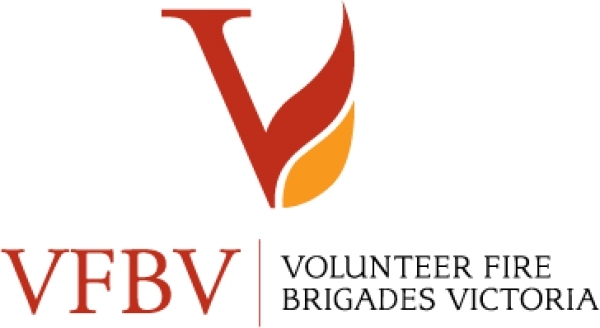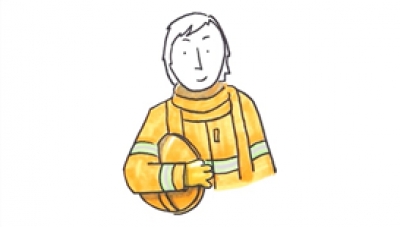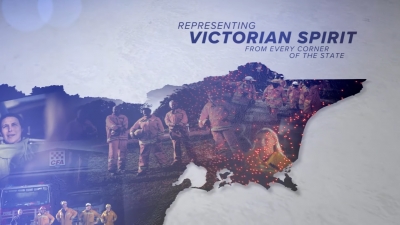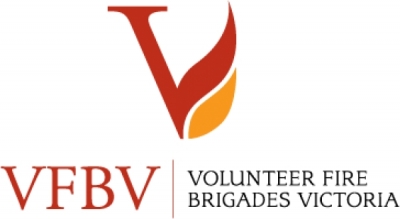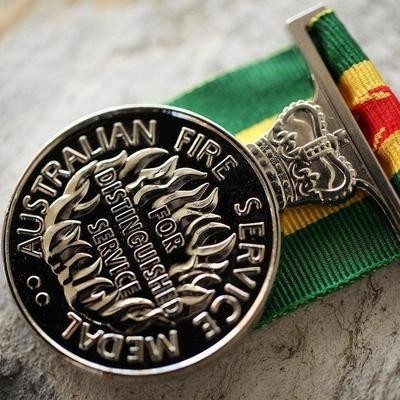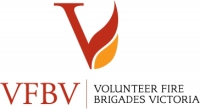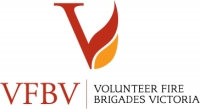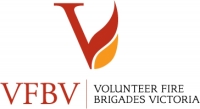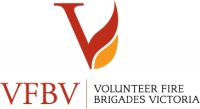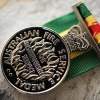
HomePage Featured (442)
VFBV Statement - Volunteers Welcome Independent Review
Written by VFBVVolunteer Fire Brigades Victoria welcomes today’s announcement by CFA of the commissioning of Dr Szoke to help lead a review into how to further strengthen CFA’s systems and approaches to ensure CFA becomes the exemplar of healthy, safe and respectful workplaces across the fire sector.
Dr Helen Szoke AO has served as Australia’s Federal Race Discrimination Commissioner and is the former Commissioner of the Victorian Equal Opportunity and Human Rights Commission. Dr Szoke will bring unparalleled credibility and expertise to the role. Most recently Dr Szoke has completed an independent review on behalf of the Chief Justice of the Supreme Court, where she considered measures to prevent sexual harassment, improve reporting and improve support for those who experience sexual harassment in Victoria Courts and VCAT.
Just like our courts, CFA Volunteers likewise expect their workplaces and fire stations across the sector to provide safe and welcoming environments that live up to the exceptionally high standards displayed and modelled by CFA members every day in protecting their communities from fire and other emergencies.
Our members deserve to be supported and protected by world class systems, policies and processes that provide every single volunteer and staff member with a work environment that is free from harassment and discrimination.
Dr Szoke has been requested to undertake an independent review of what more the CFA can do to support and create a welcoming, inclusive and supportive organisation which embraces diversity and deals effectively with cultural issues when they do arise.
This commitment and review is fully supported by VFBV and delivers on our strong advocacy for CFA’s systems and complaint processes to be independently reviewed and improved to reflect the high standards that CFA members expect.
While this should have been completed years ago through the previous Victorian Equal Opportunity and Human Rights Commission review into the MFB and CFA, we are proud that CFA will take this courageous step to free itself from Government and sector inertia and forge ahead with its own work that will lead to CFA becoming the largest, safest and best practice firefighting organisation in Victoria.
We acknowledge the disappointment and hurt by all those members who feel abandoned by the previous VEOHRC process and the injustice of their stories and complaints never seeing the light of day. And while VFBV has staunchly advocated for VEOHRC to be involved and be asked to complete the work that was started, we acknowledge that CFA cannot continue to be held hostage to a process that has seemingly lost Government and VEOHRC support and has been relentlessly bogged down in legal and political fights.
This review will give CFA a solid baseline and framework to strengthen and support the vital goal of promoting diversity and ensuring all our members feel safe and have access to robust systems of accountability. A fire service where victims are supported, and all members are encouraged to speak up about the importance of a safe and respectful workplace.
As the 2016 Australian Bureau of Statistics personal safety survey reports, two in five people aged 18 years and over have experienced sexual harassment during their lifetime. Women are more than twice as likely to experience sexual harassment than men. Fire services are not immune to the issues faced across the broader community and public sector. But this should not be used as a reason to avoid or confront the issue head on.
As reports into Victoria Police, Ambulance Victoria, Australian Defence Forces and the Victorian Public Sector have shown, these are complex and confronting topics to tackle. But by doing so, we set the example and raise the bar for all others to follow. VFBV accepts its leadership role to support this work and be part of that change.
CFA members, volunteers and staff spend their lives and careers protecting the safety and putting their fellow Victorians ahead of themselves. They deserve no stone to be unturned when it comes to- ensuring they themselves are protected and have safe and respectful workplaces.
VOLUNTEERS DISMISS UNION PROPAGANDA
Volunteer Fire Brigades Victoria notes with disappointment the commencement of yet another UFU TV and print campaign that attempts to scare and mislead the public.
VFBV rejects the unions divisive campaign, and reminds Victorians that all firefighters are professional, including those that choose not to be paid. We work as one and we respect one another.
To choose a term to headline their campaign that they know volunteer firefighters will find insulting just illustrates the divisive and disrespectful approach of the UFU towards Victoria’s 55,000 strong CFA volunteer first responders.
Alarmingly, the campaign appears to be an obvious attempt to influence and politicise the Governments ‘independent’ fire district review panel to try and initiate a further review of fire district boundaries before the next election. A tired argument with no other goal than to further expand the union’s membership across regional Victoria.
Of significant concern is the campaign message that Victorian’s do not need to be prepared for an emergency because the State’s small paid workforce will somehow be there. This is the opposite of changes made since Victoria’s 2009 Black Saturday Royal Commission that urged agencies and Governments to support and encourage all Victorians to prepare for emergencies and take an active part in their own and their family’s safety.
It is an irresponsible and dangerous message that demonstrates how out of touch the union is on how to build safer and more resilient communities.
All of Victoria’s firefighters (volunteer and paid) have been working hard over the last twelve months to rebuild respect and courtesy between agencies and each other - regardless of the badge on the side of the fire truck. VFBV is proud of our career firefighter brothers and sisters and rejects any provocation that attempts to pit firefighter against firefighter.
To return to the politics of the past and try to stoke peoples fear and anxiousness on the eve of a fire season is concerning behaviour but aptly demonstrates the perception that the union cannot change and is simply unwilling to work collaboratively with others. It is an insult to all firefighters and displays an ugly and selfish side of a small militant union desperately trying to redeem itself and its image after years of self-inflicted controversy.
CFA volunteers have stood by Victorians during their darkest days and will not be distracted from preparing for this year’s fire danger period. They will stand united against such unprovoked attacks.
CFA volunteers have continued to engage with communities, run community education campaigns, and essential firefighter training and skills maintenance right through the COVID pandemic. They are highly trained and highly professional.
As Victoria’s largest, and most diverse fire service – CFA volunteers selflessly respond to structure fires, bush fires, industrial fires, HAZMAT incidents, road accident rescue, and other highly specialised incidents including co-responding with ambulance Victoria to emergency medical incidents.
The respect and trust of the Victorian community in CFA and CFA volunteers is well earned over many decades of service and built on actions and deeds - not words or fancy PR stunts.
CFA volunteers stand by Victorian communities 24 hours a day, 365 days a year. Together, we are building a safer and more resilient Victoria standing united with our communities against the threat of emergencies and other natural disasters. You can be confident in CFA and CFA volunteers.
As volunteers ourselves - we are proud of our communities and proud of our community-based fire brigades located across 1,217 communities right across Victoria. We work with and for the communities we are based in. Victoria’s emergency management volunteers contribute $2.5 billion dollars of value to Victoria every year.
CFA volunteers – proud to serve.
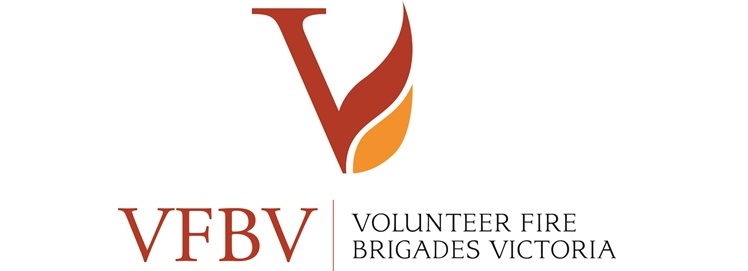 |
About VFBV: VFBV is established under the Country Fire Authority Act and is the peak body for CFA Volunteers in Victoria. VFBV works tirelessly to represent, advocate and support CFA volunteers to the CFA Board and management, governments, ministers, members of parliament, councils, instrumentalities, business and the public. Our vision is for Strong Volunteerism, Embraced to Build Community Resilience for a Safer Victoria. |
Want is CFA Volunteer Surge Capacity
One of the fundamental benefits of the CFA volunteer based model is the depth of capacity and capability it provides to maintain response across Victoria to widespread, large scale, multiple and concurrent emergencies whilst maintaining local fire cover for the rest of Victoria.
Watch our animated video below to learn how it works and why it is important.
Our colourful animated video explains how CFA’s volunteer surge capacity works and our computer-generated video shows a satellite view of hundreds of brigades as they respond.
Our animated video gives you a quick demonstration of CFA’s volunteer surge capacity.
Our computer-generated video shows modelling of official CFA data, put together by VFBV and the University of Melbourne’s Centre for Disaster Management and Public Safety to show how CFA’s great volunteer surge capacity can deal with multiple major incidents.
An explanation of CFA Volunteer Surge Capacity
CFA volunteer surge capacity is the ability to field thousands of trained, experienced volunteer firefighters at short notice while at the same time maintaining normal day to day service delivery and protection of local communities.
 |
One of the fundamental benefits of the CFA volunteer based model is the depth of capacity and capability it provides to maintain response across Victoria to widespread, large scale, multiple and concurrent emergencies whilst maintaining local fire cover for the rest of Victoria. |
 |
The blue dots on the map above show the location of CFA volunteer brigades across Victoria that provide a network of brigades all contributing to volunteer surge capacity. |
 |
CFA volunteers attend local fires, day to day emergencies and major disasters anywhere in the state. |
 |
They are professionally trained and equipped for all fire risk situations - from houses, shops and factory fires to major hazards, bushfires and motor vehicle accidents. |
 |
Your local CFA volunteer brigade is much more than just 3 or 4 firefighters on duty – it’s dozens of volunteer firefighters on call and ready whenever needed 24 hours a day 7 days a week. Every day of the year. |
 |
This regular activation results in a well-motivated, exercised and prepared emergency force that maintains operational readiness across the whole year. This not only keeps communities safe but ensures the highest levels of firefighter safety due to frequent use of their skills. |
 |
CFA’s huge volunteer numbers mean we have the ability to combat multiple fires at a time and keep supplying firefighters on the ground. Often for weeks, months or more as required. |
 |
A huge portion of our CFA volunteer surge capacity comes from the ever-growing outer metropolitan Melbourne and provincial cities. So maintaining our volunteer numbers in these areas is vitally important for Victoria. |
 |
These volunteers from outer metro along with CFA volunteers right across the state means we have thousands of trained, experienced volunteer fire-fighters in the field ready to be deployed every hour of the day and we can keep supplying these firefighters for weeks at a time wherever they are needed. |
 |
This enormous surge capacity is recognized by fire experts as one of the most fundamental benefits of the CFA volunteer workforce. They are embedded in cities, suburbs, regions and even the smallest rural communities. |
 |
The 2009 Bushfires Royal Commission said that the CFA volunteer surge capacity, together with the local knowledge and the ability of CFA volunteer fire brigades to mobilise a rapid response was a key strength during the 2009 Black Saturday Fires. |
 |
This capacity is not just demonstrated during summer, but across the entire year. The 2014 Hazelwood Mine Fire is just one example of a non-bushfire emergency that extended over 45 days and required thousands of well trained volunteers. And this volunteer surge capacity is essential for Victoria’s continuing ability to deal with large fires. |
We are tens of thousands of Victorians, committed to protecting lives and property.
We are skilled, determined and here to serve Victorians now and into the future.
We are from the community and for the community.
We are CFA.
Watch the 'Our Community, our CFA' video here.
Watch the short video to gain an appreciation and understanding of Victoria's iconic CFA, one of the largest and most professional volunteer emergency services in the world. Excerpts from the video journey are displayed below to help you reflect on the incredible fire service built by volunteers with selfless grit and determination to benefit their communities and the Victorian public.
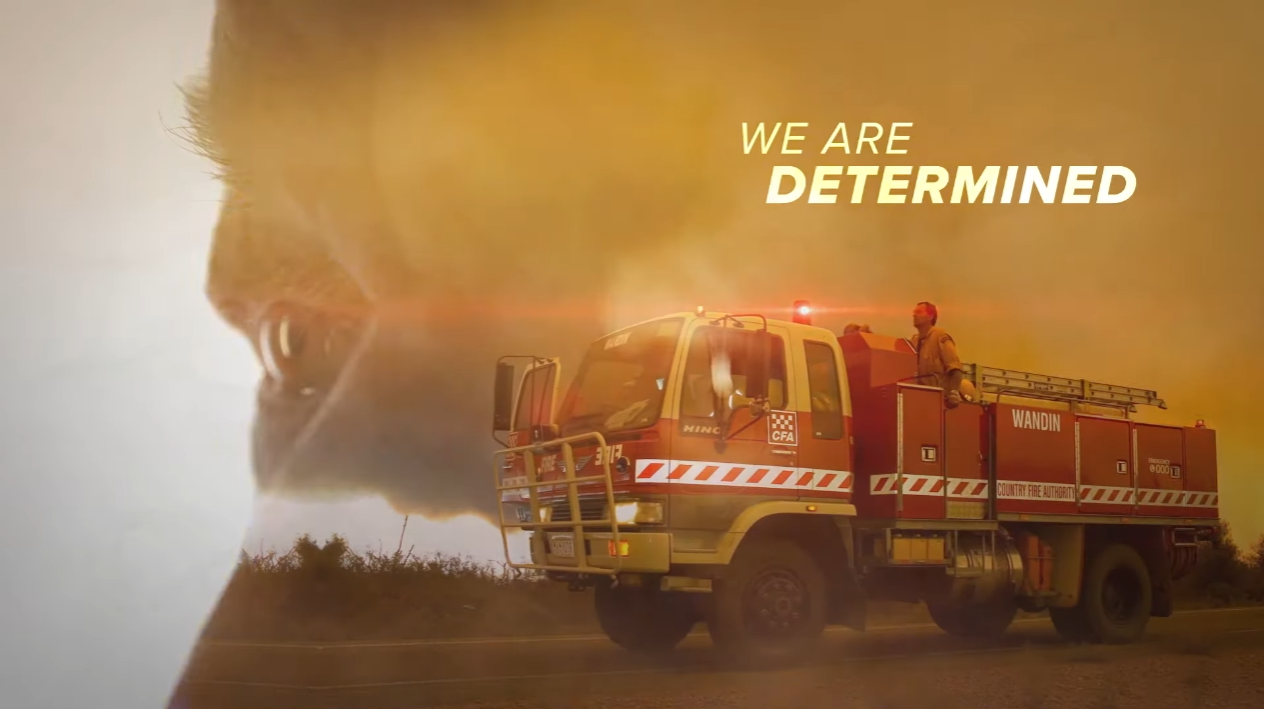 |
We are determined |
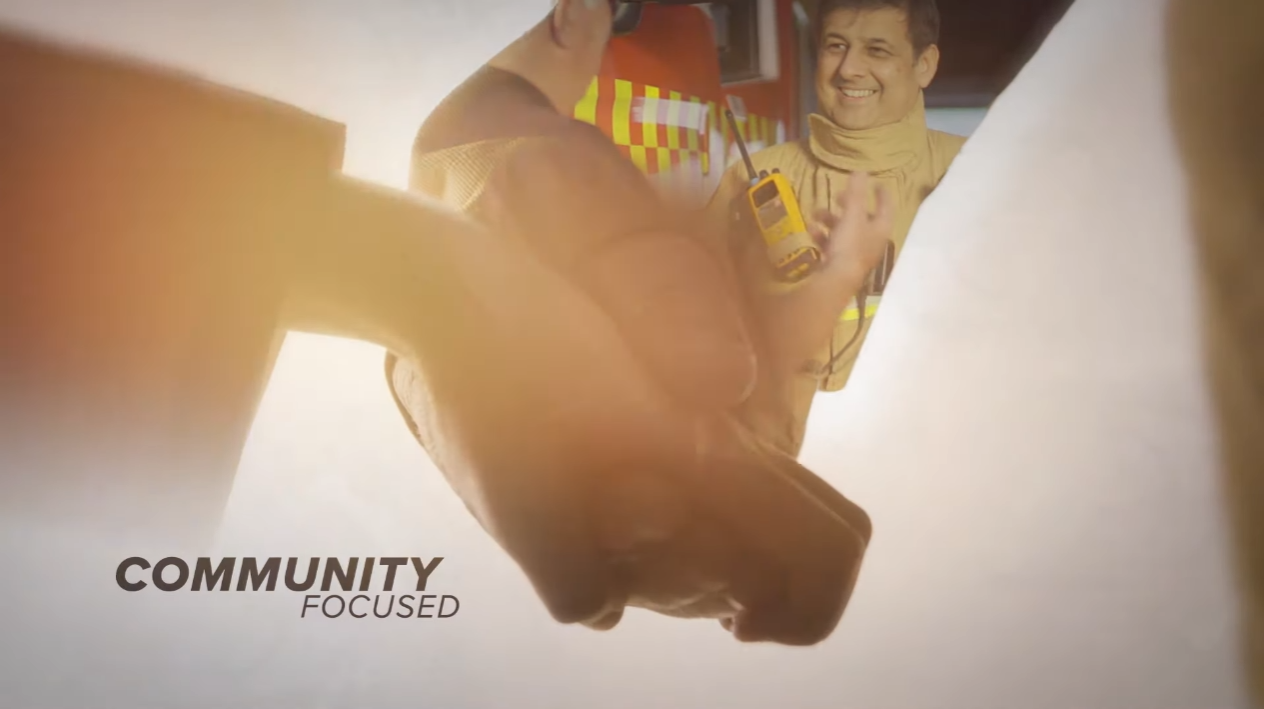 |
We are community focused |
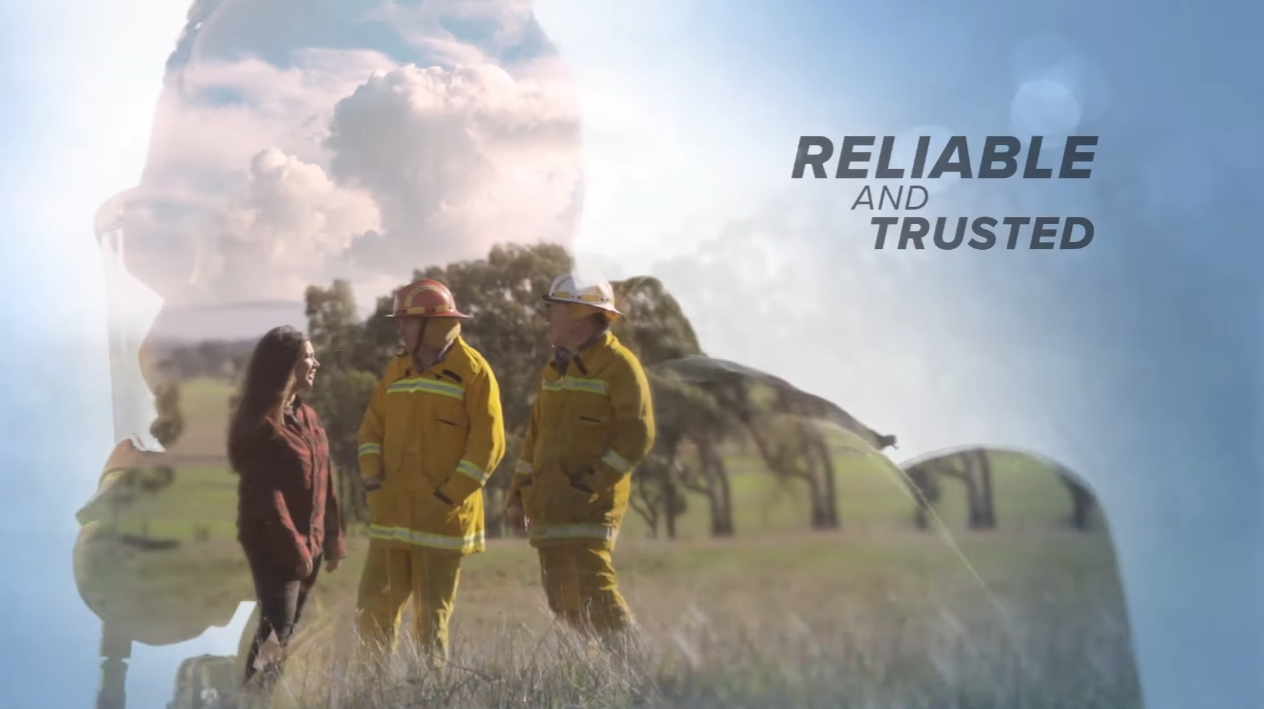 |
We are trusted and reliable |
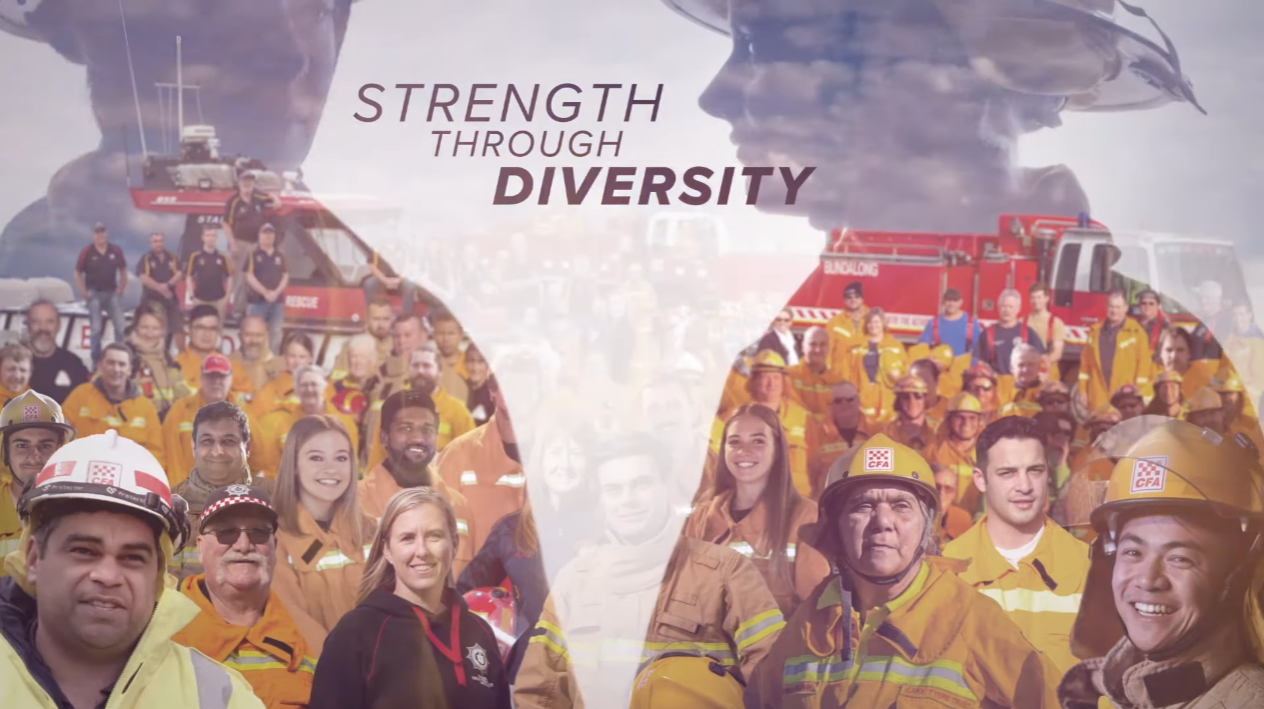 |
We draw strength through diversity |
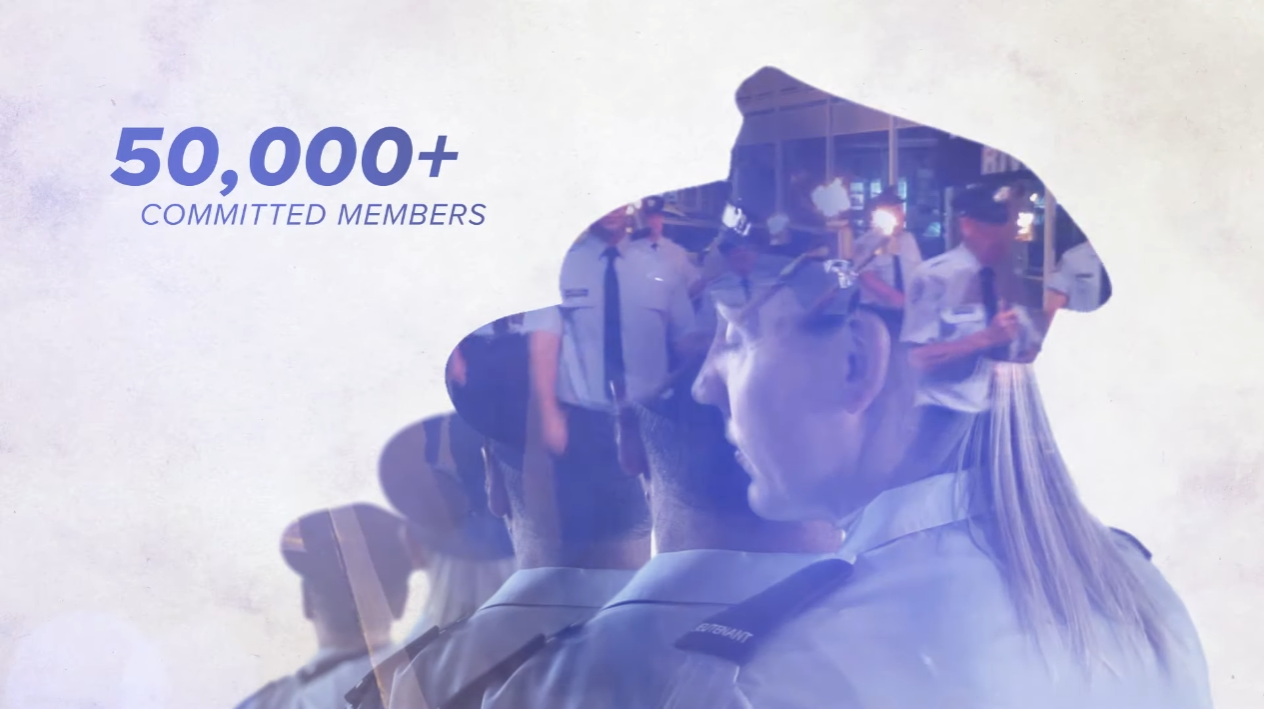 |
Are made up of more than 50,000 committed members |
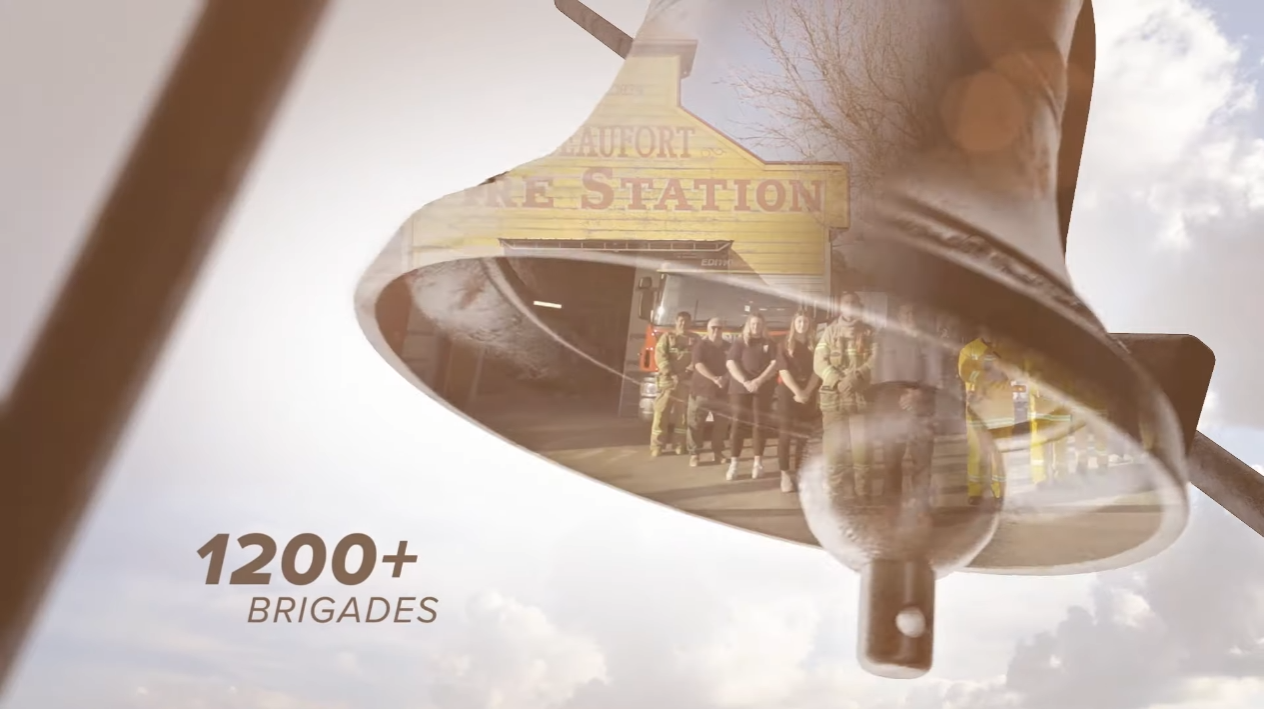 |
Across 1,217 volunteer fire brigades |
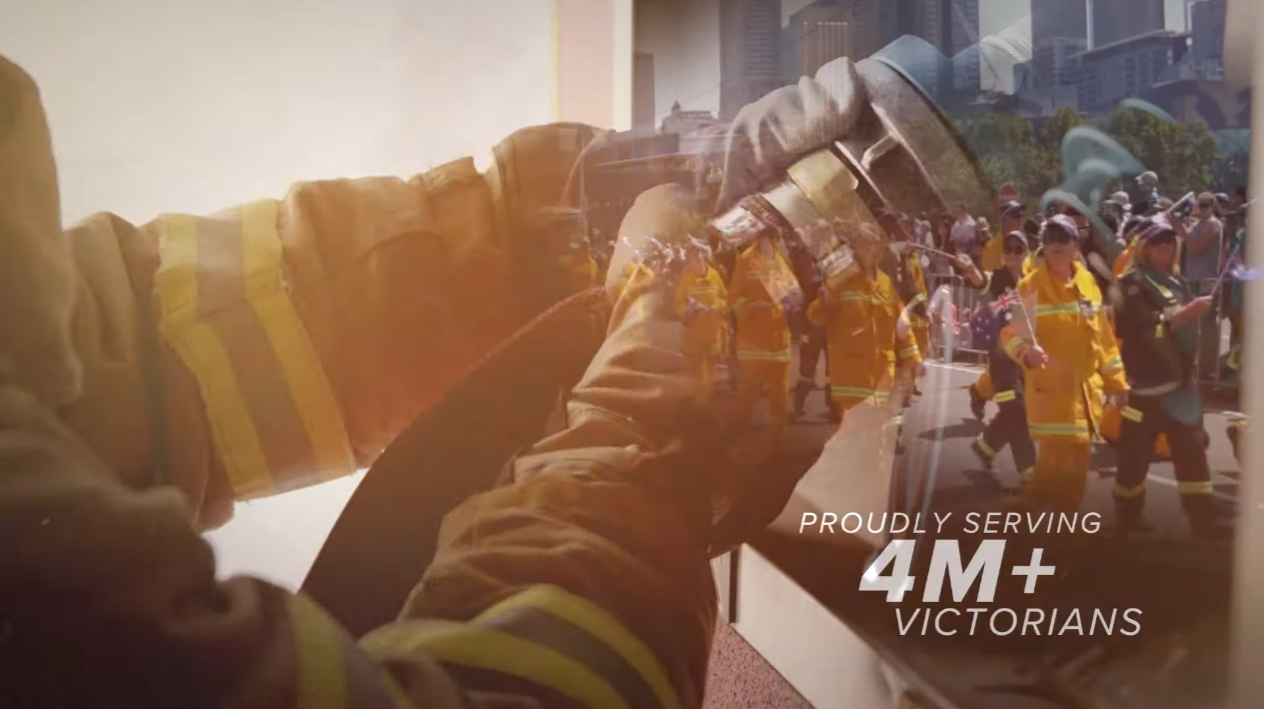 |
Proudly serving over 4 Million Victorians |
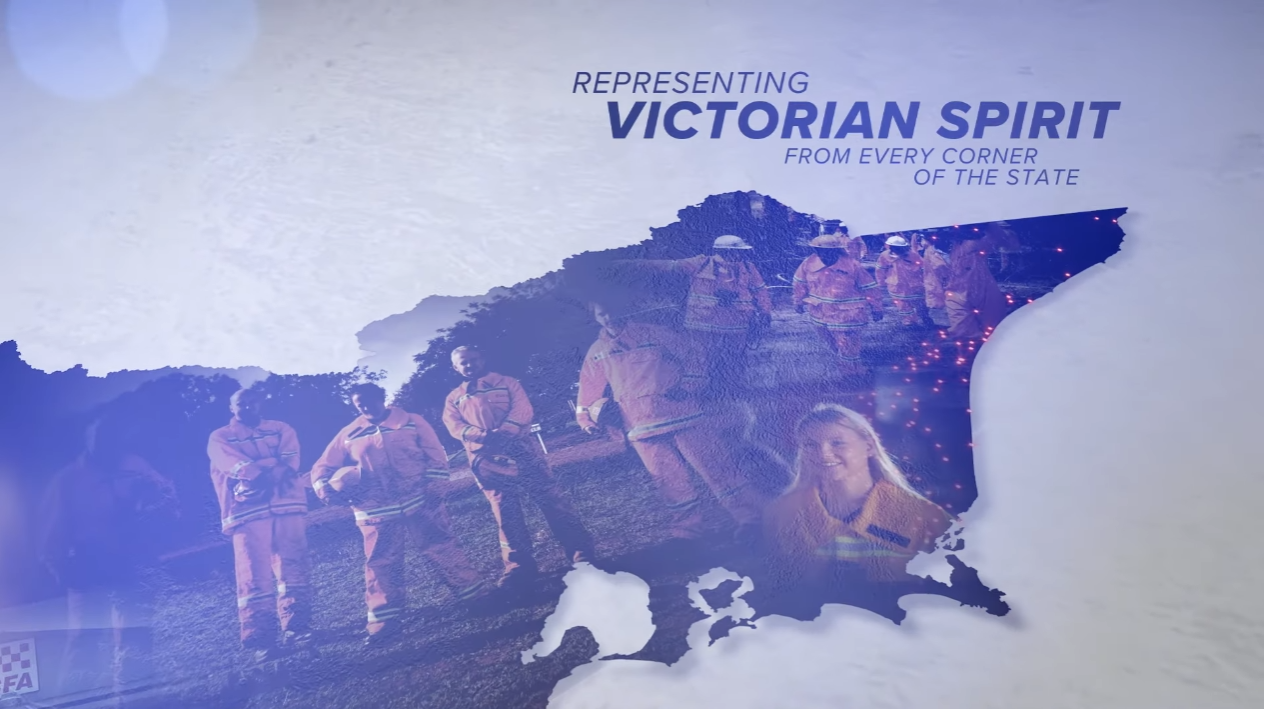 |
Representing Victorian Spirit from every corner of the State |
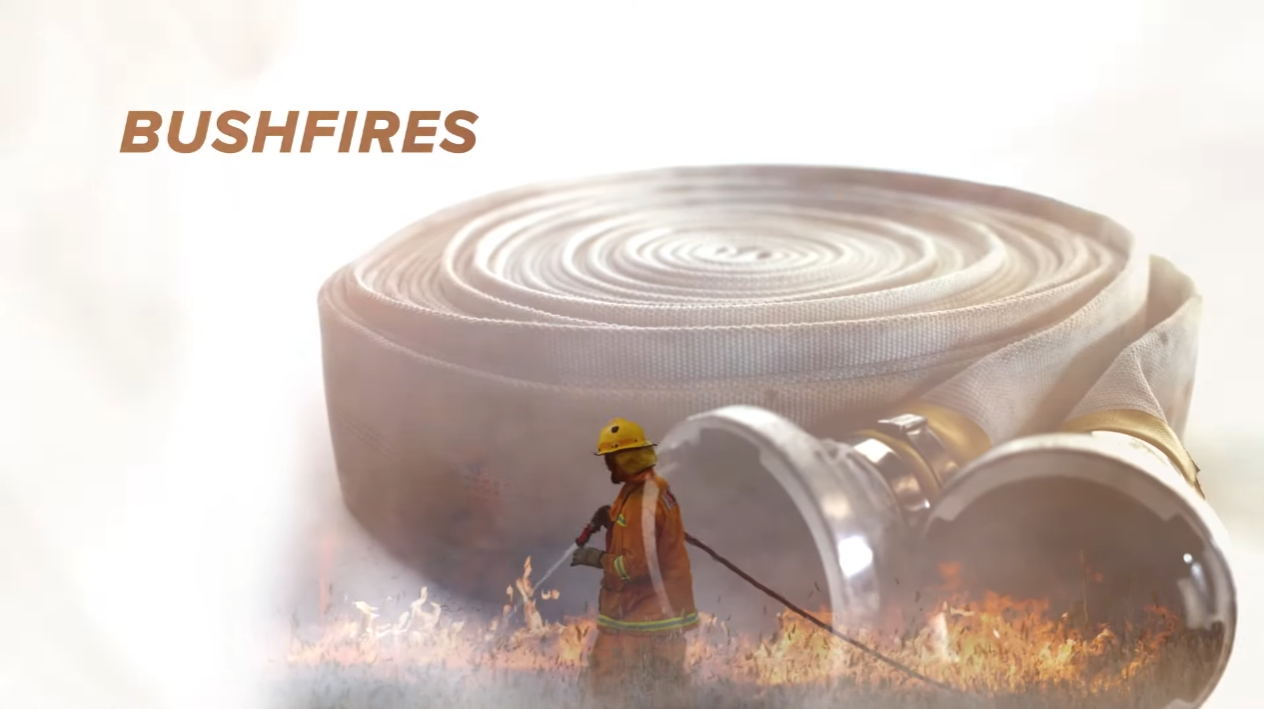 |
We respond to bushfires |
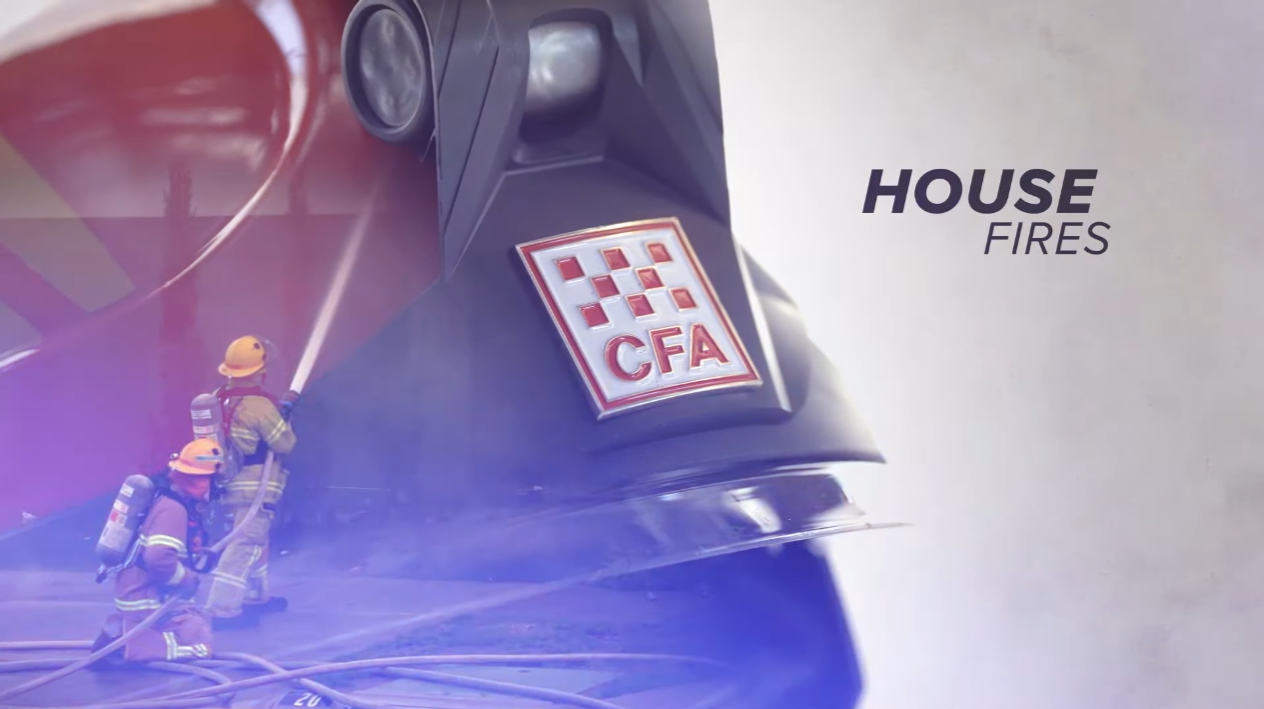 |
...and house fires |
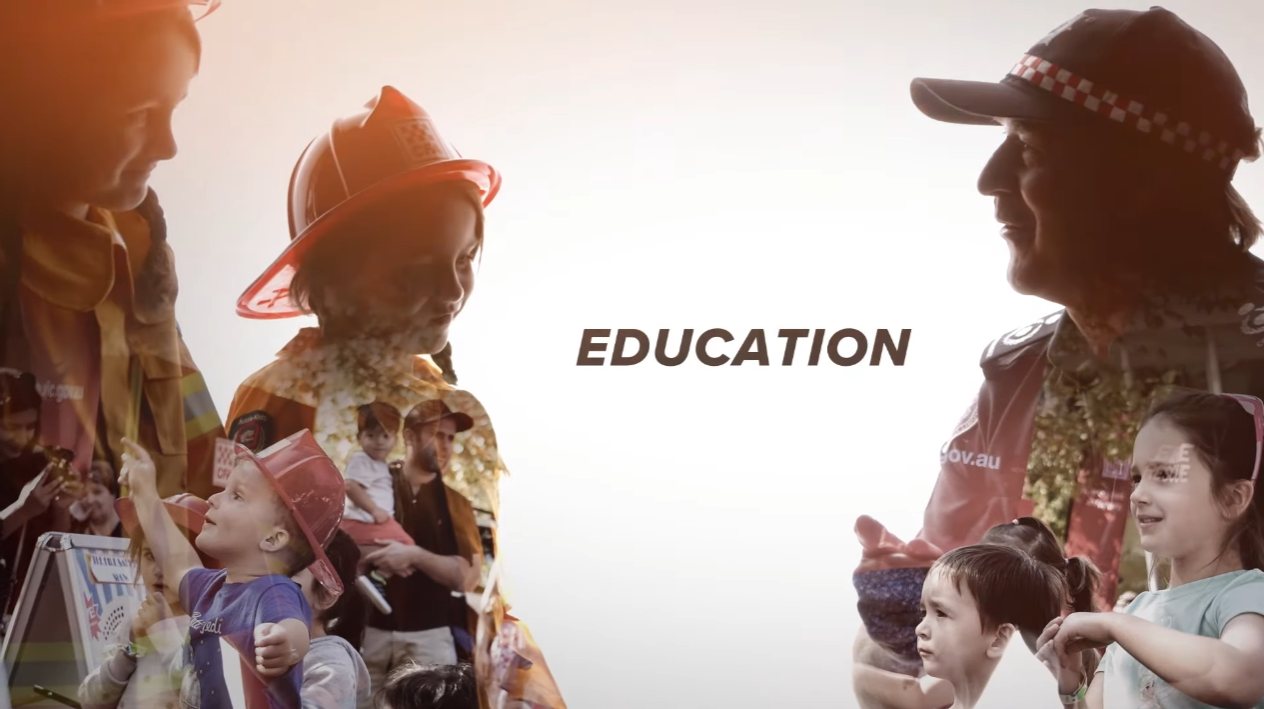 |
We provide community education both before, during and after emergencies |
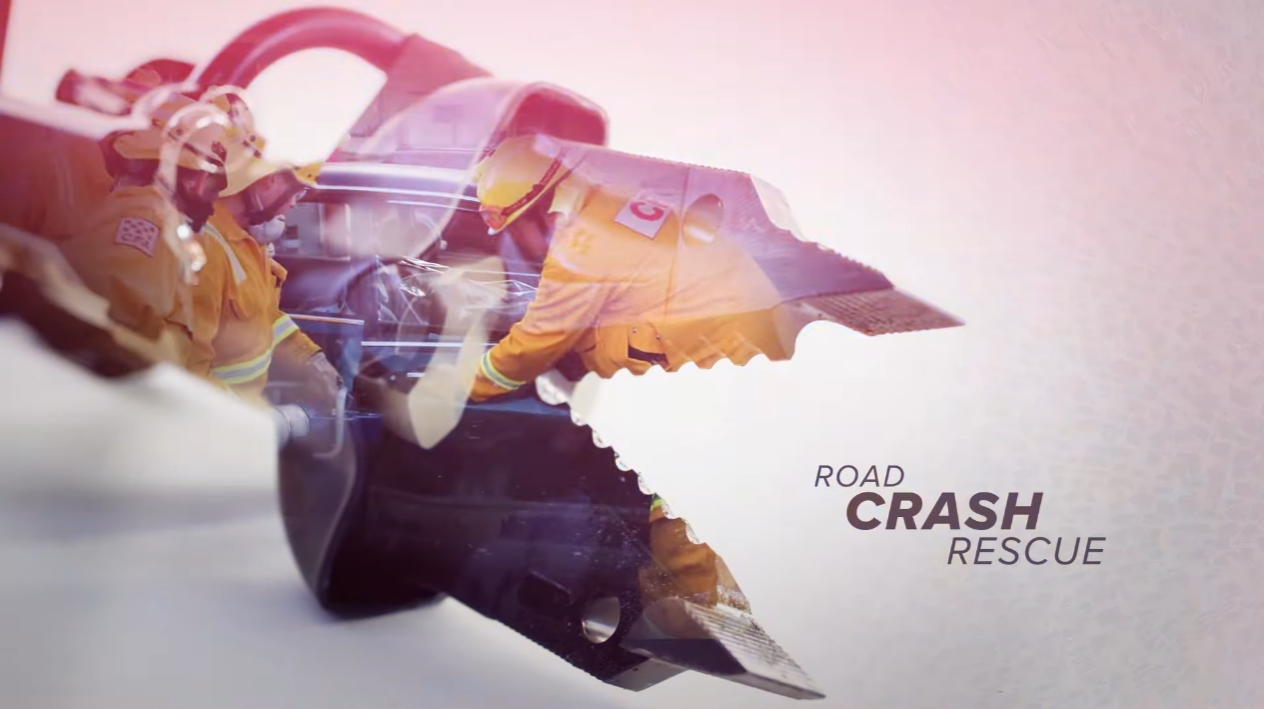 |
We provide road crash rescue |
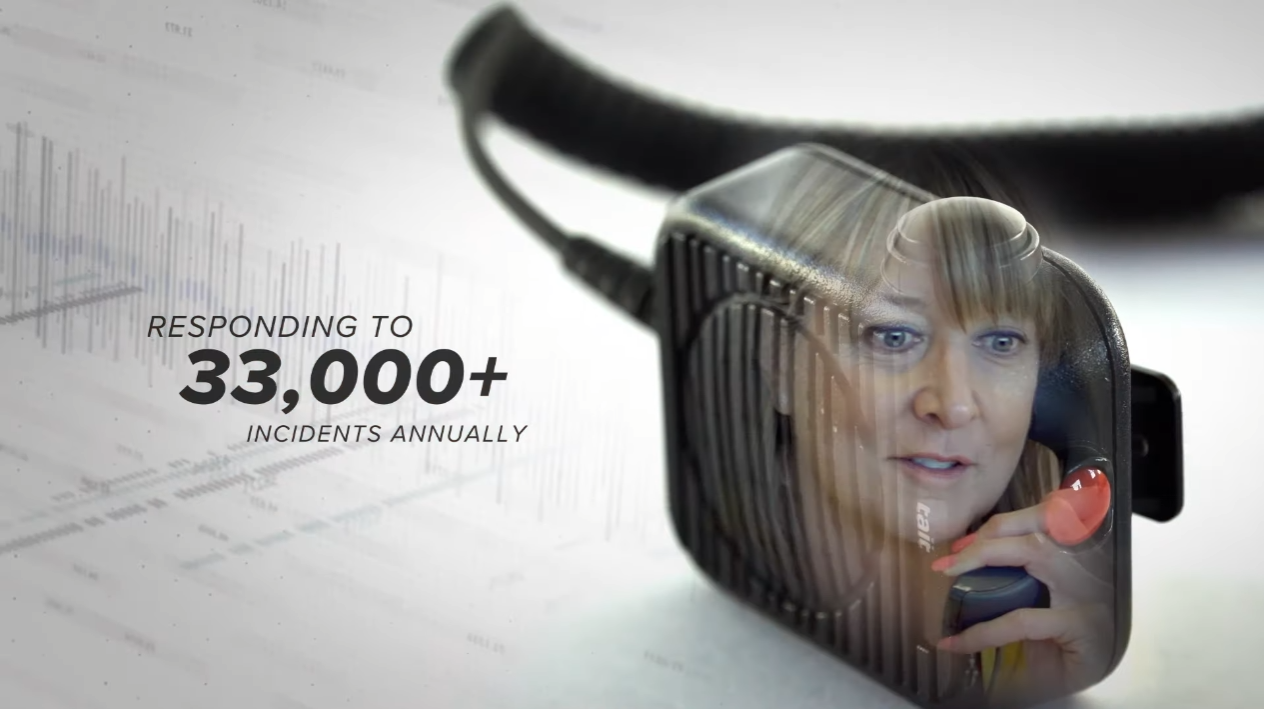 |
And respond to more than 33,000 incidents every year |
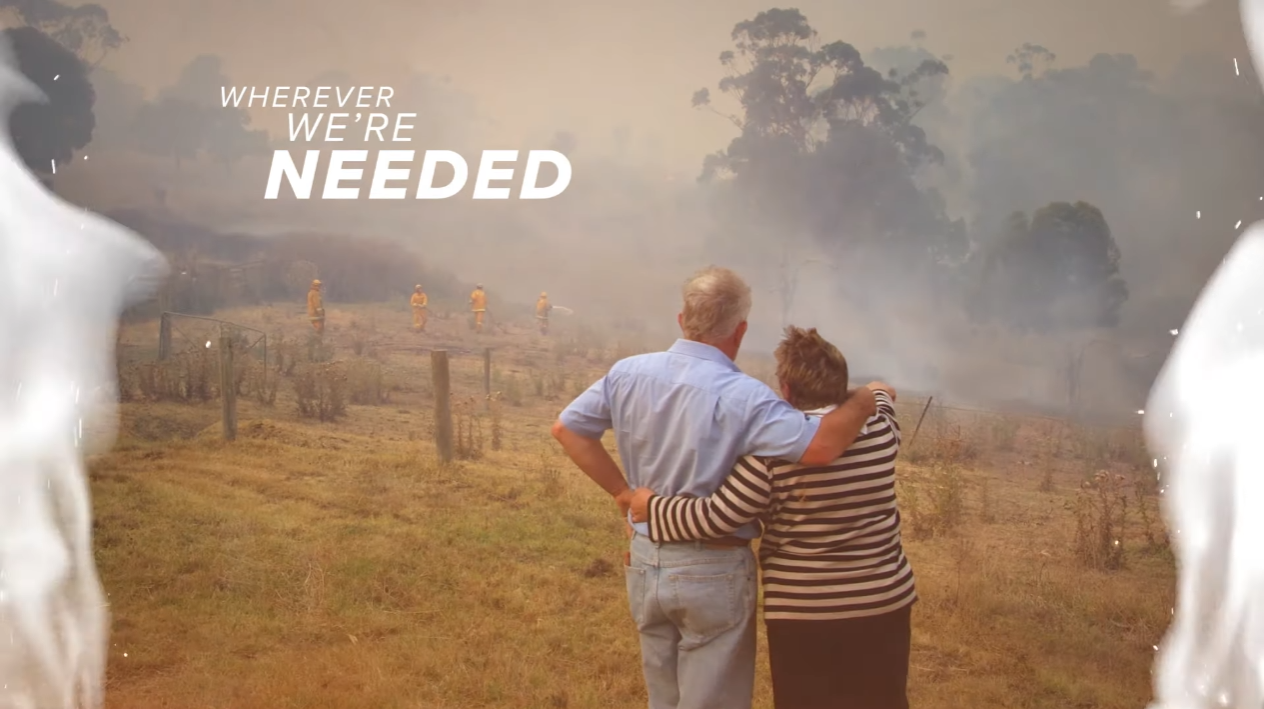 |
We respond wherever we're needed |
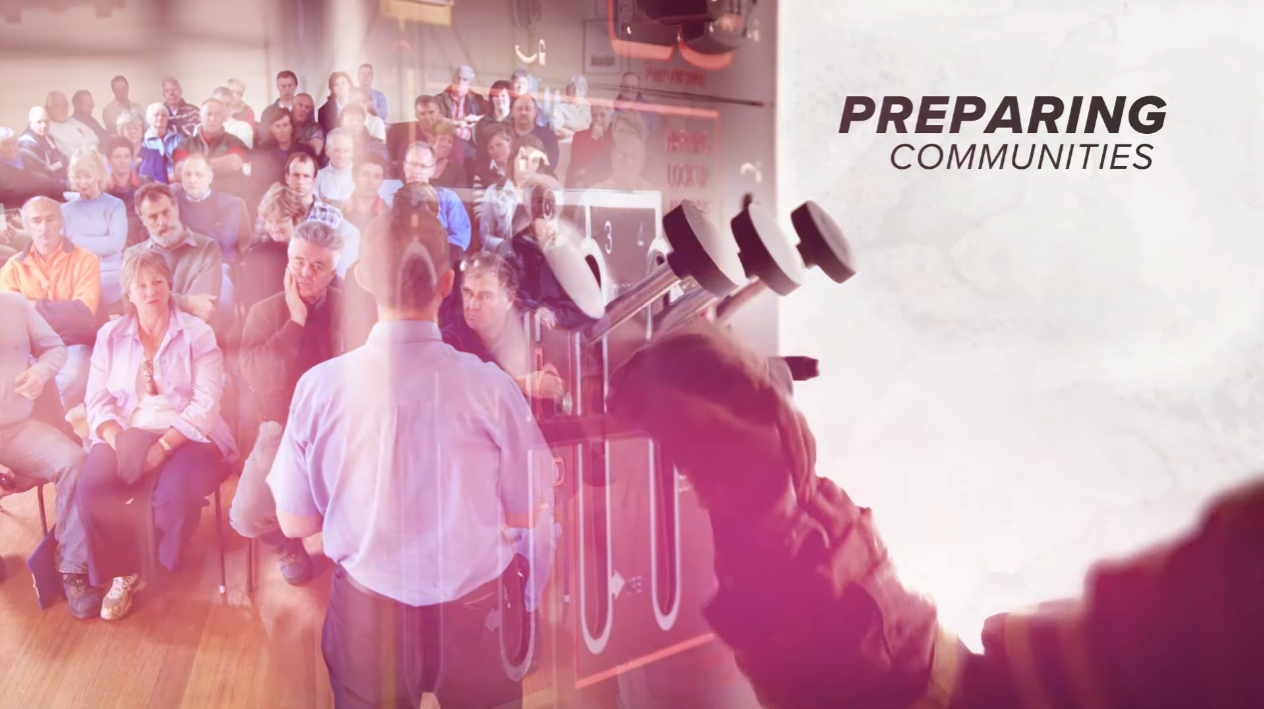 |
We assist communities prepare for emergencies |
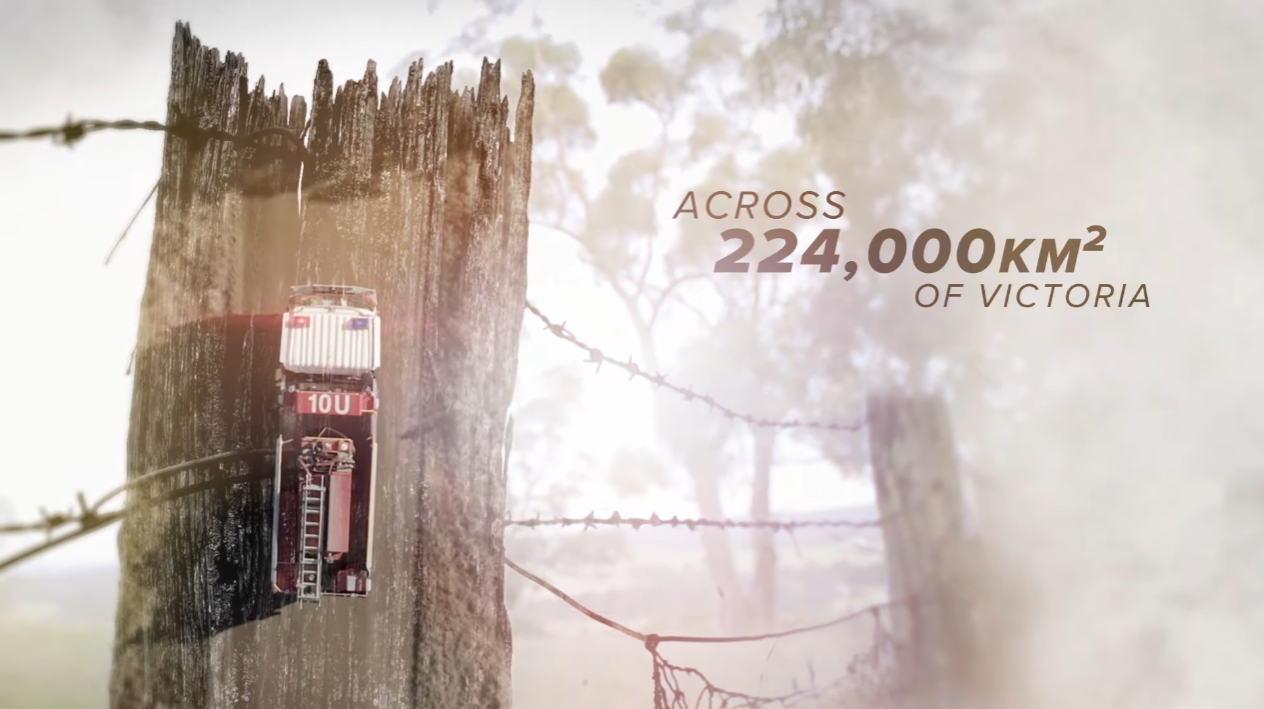 |
Across more than 224,000 squared kilometers of Victoria |
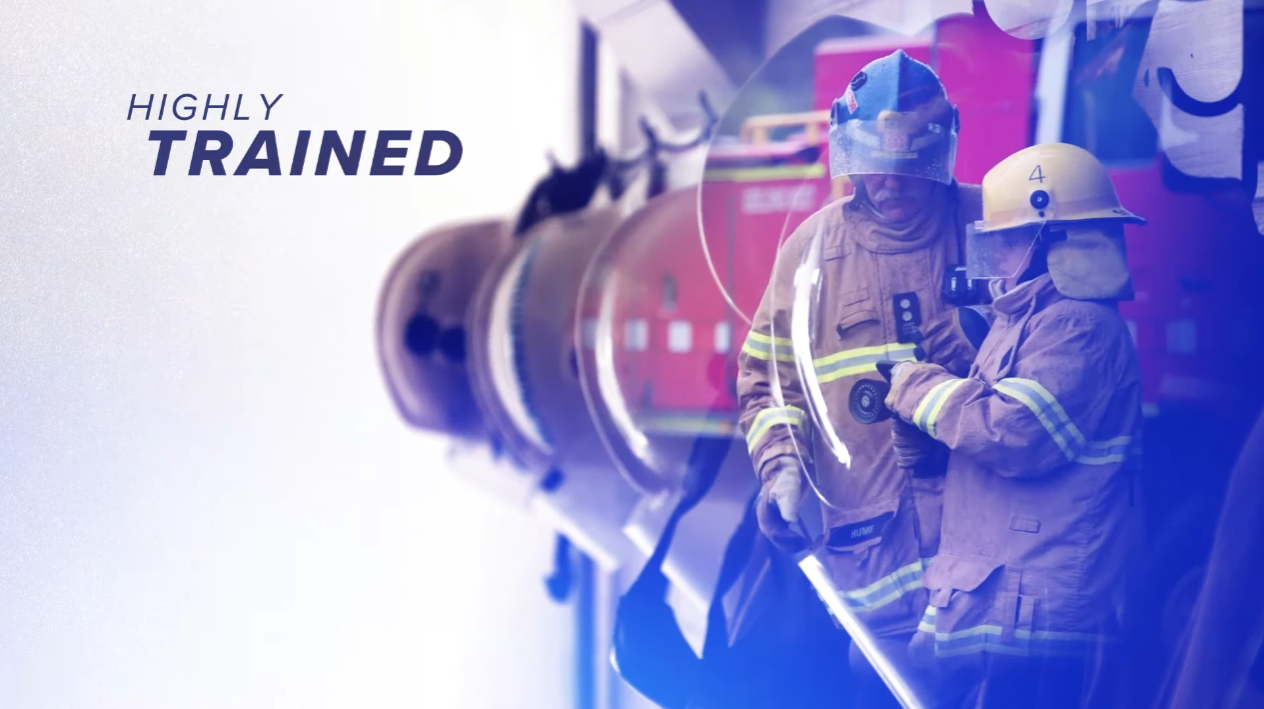 |
We are highly trained |
 |
We use research and evidence to guide our decision making |
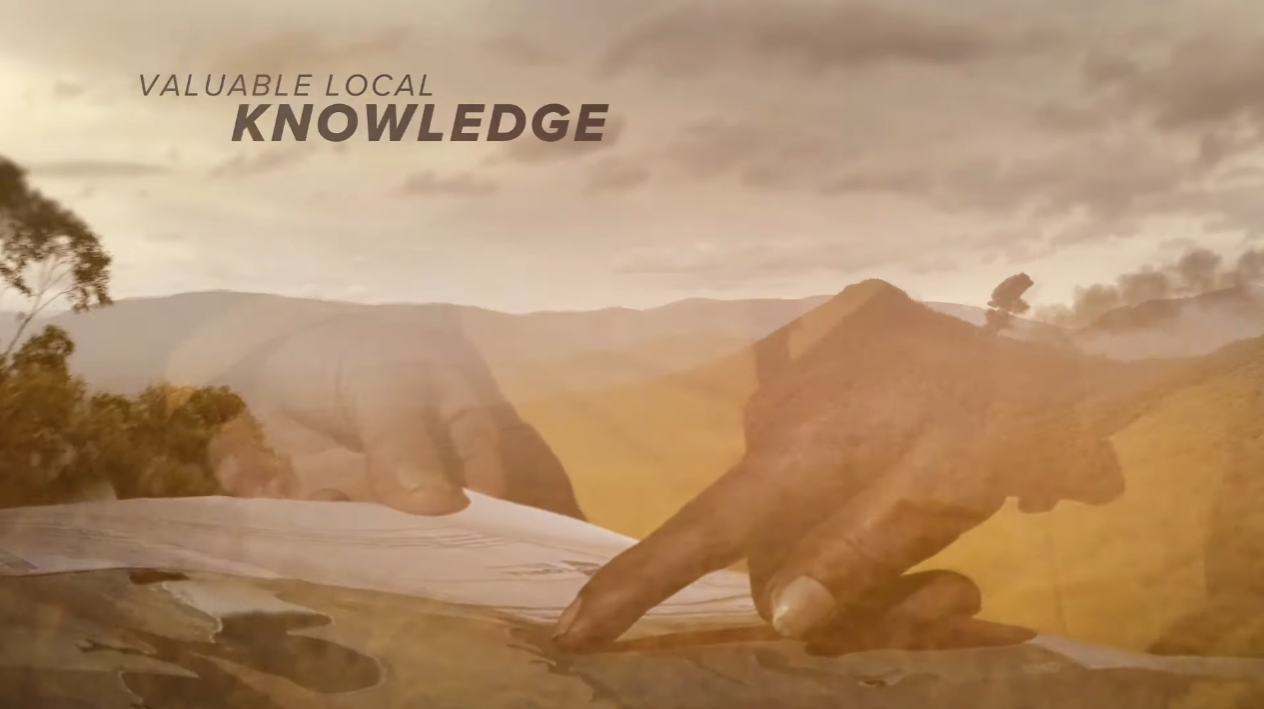 |
We provide valuable local knowledge before, during and after emergencies |
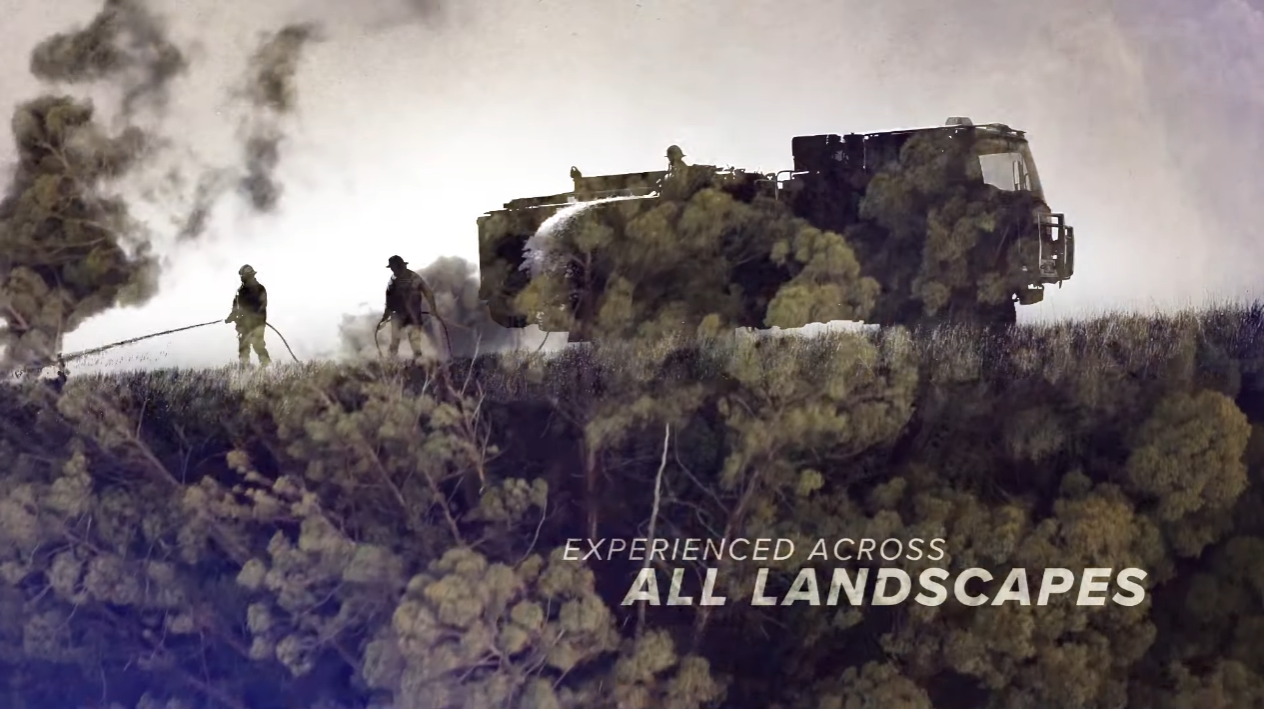 |
We are experienced across all landscapes |
 |
We have broad and diverse skill sets |
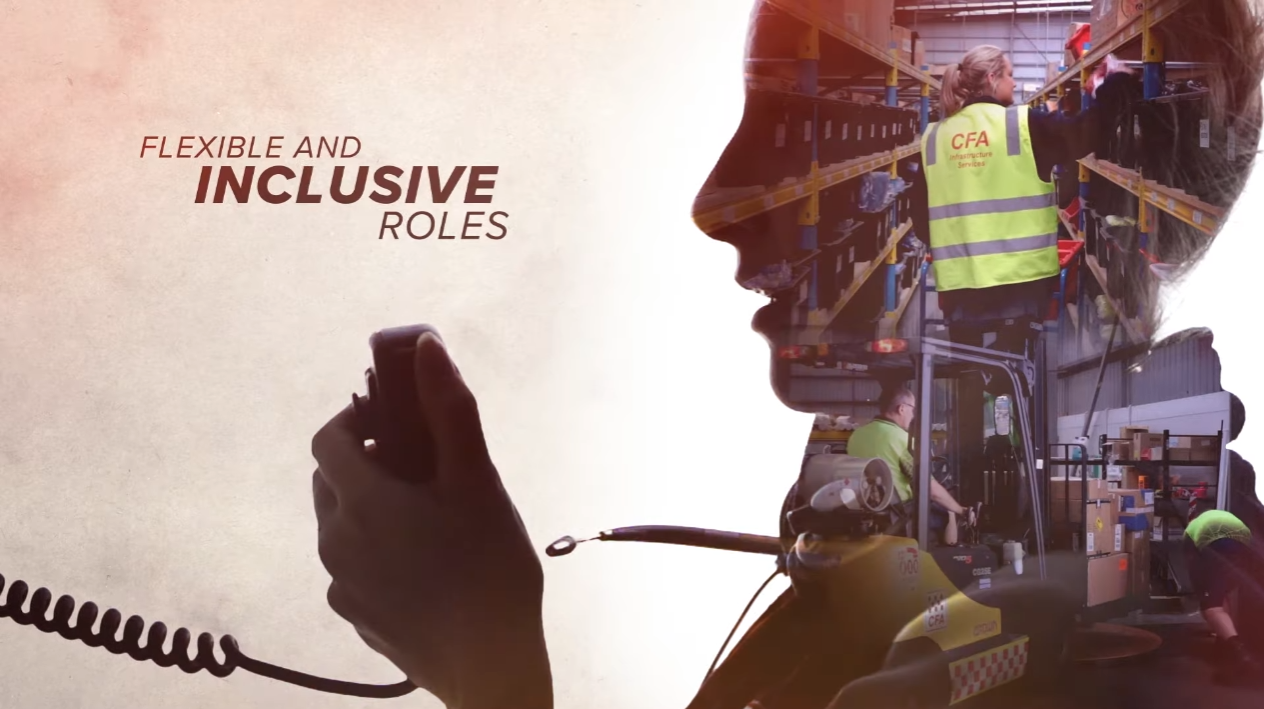 |
And have flexible and inclusive roles to encourage diversity of skills, people, thought and gender |
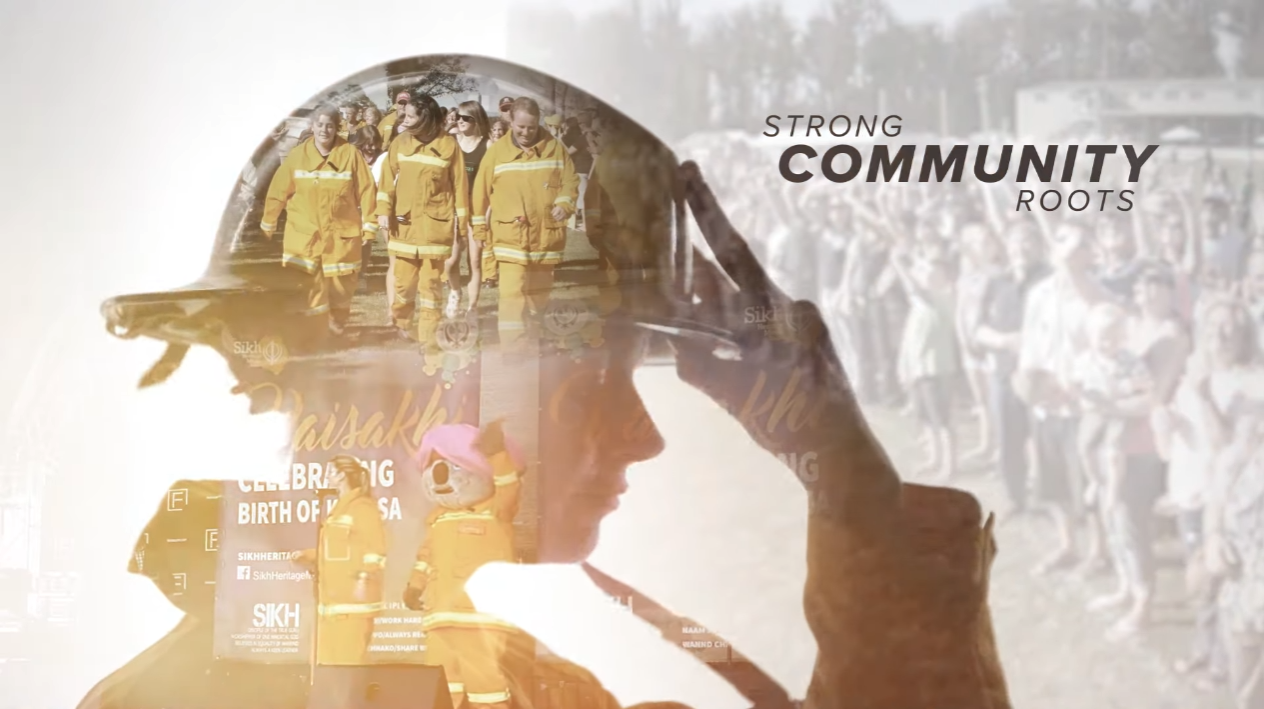 |
We are born from the communities we serve providing strong community roots |
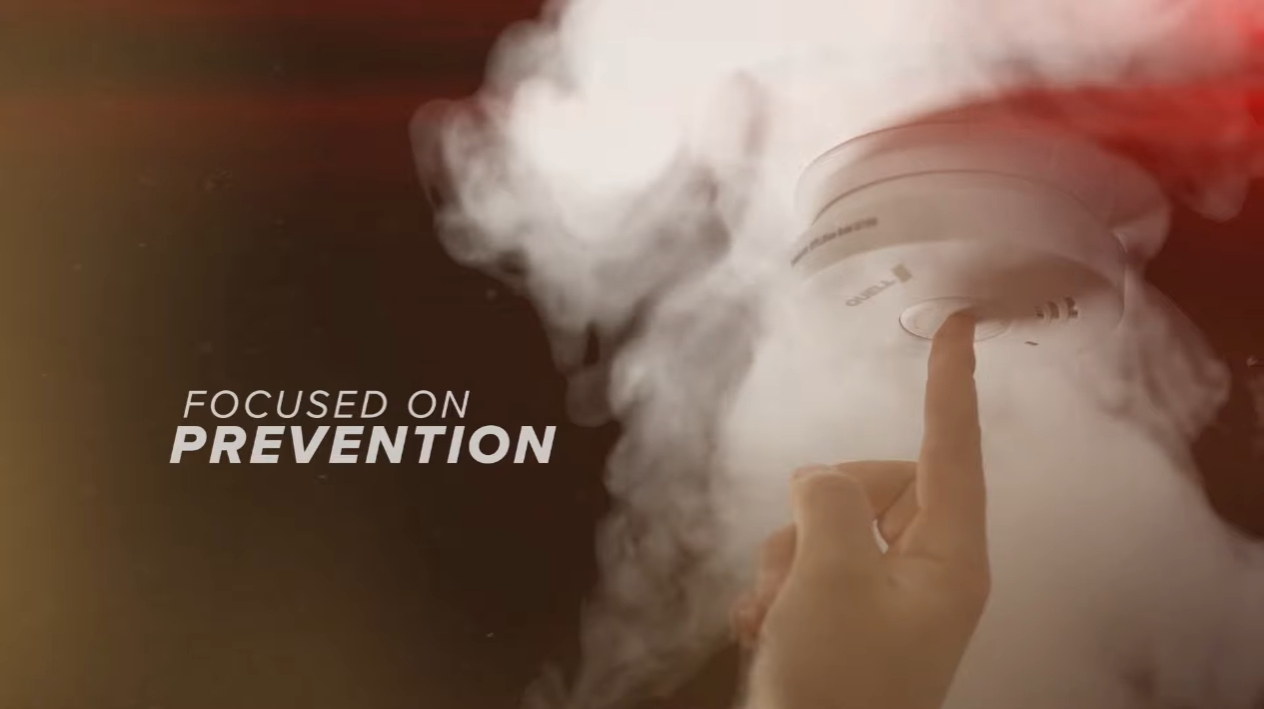 |
We are focused on prevention... |
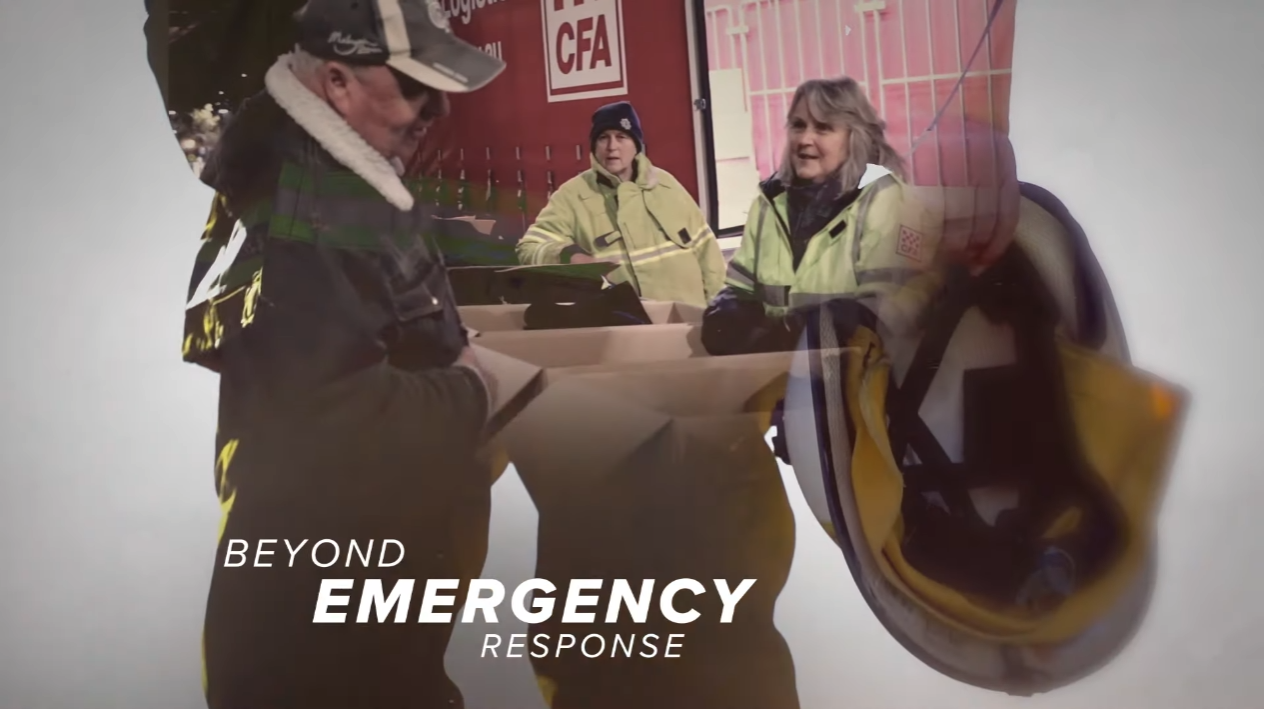 |
...that stretches far beyond just initial emergency response |
 |
CFA has been operating for more than 75 years and volunteer fire brigades existed well before that |
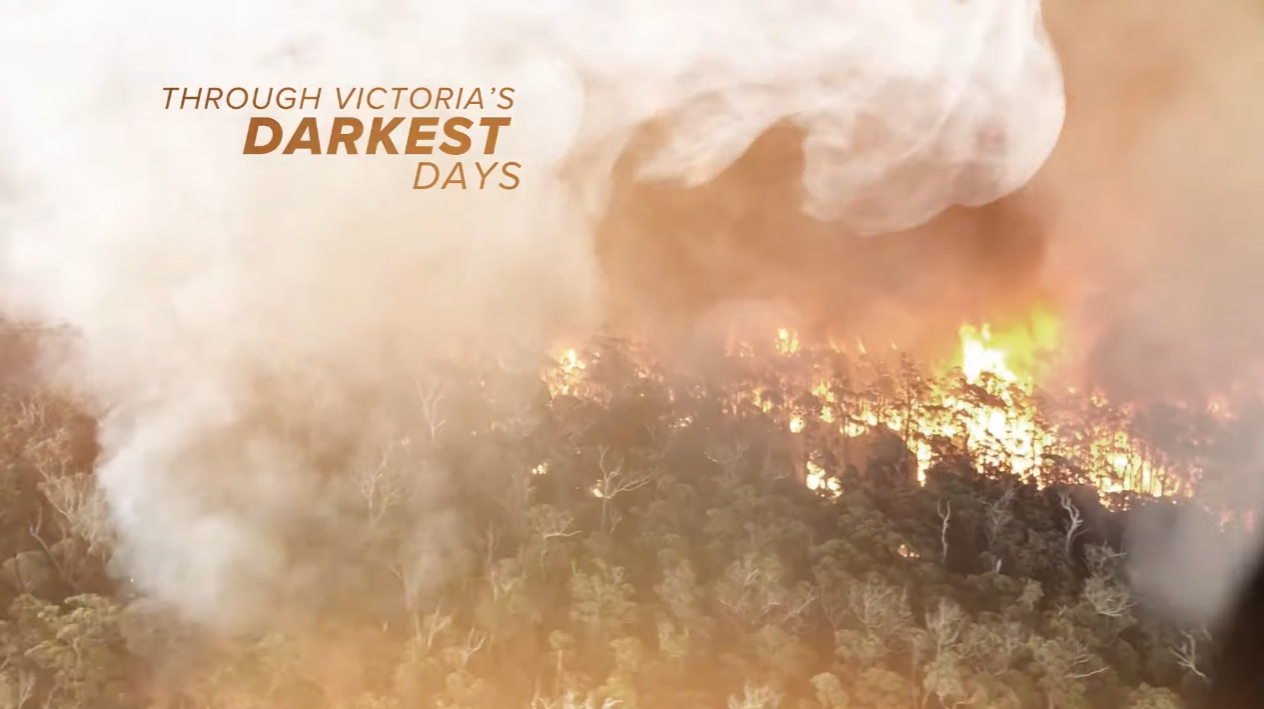 |
We have stood by our communities through Victoria's darkest days |
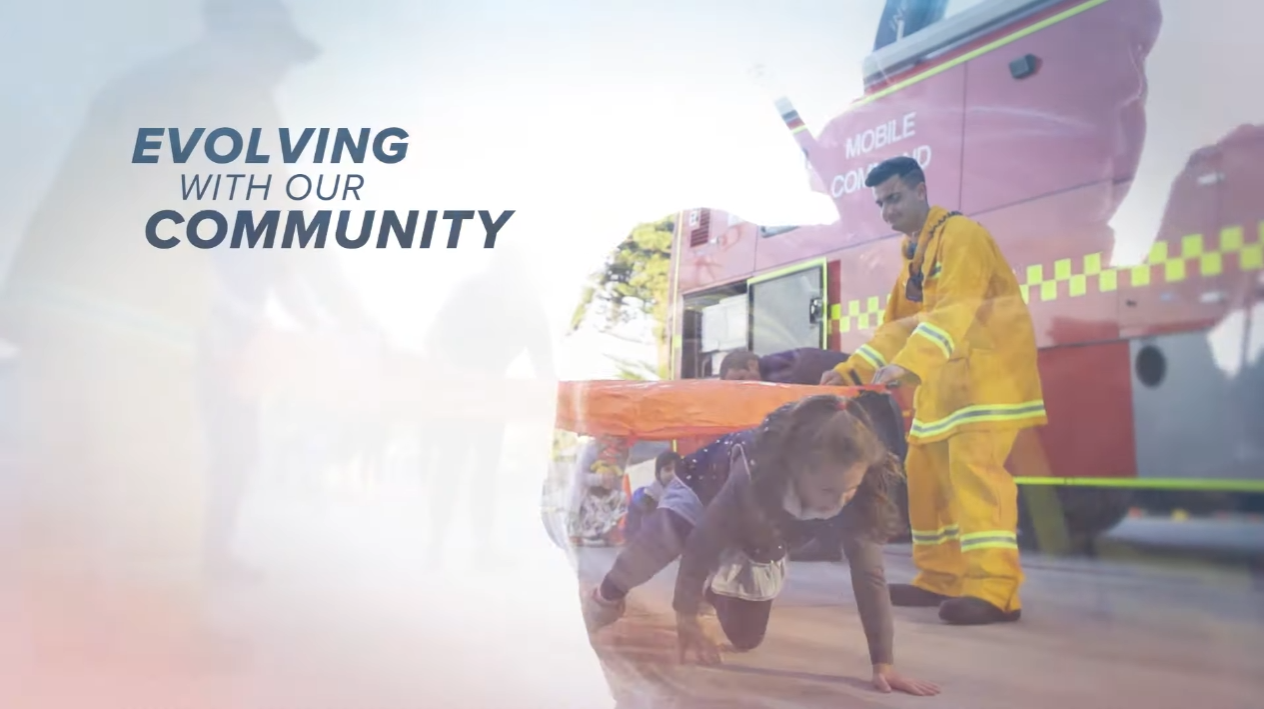 |
We have evolved over time with our communities |
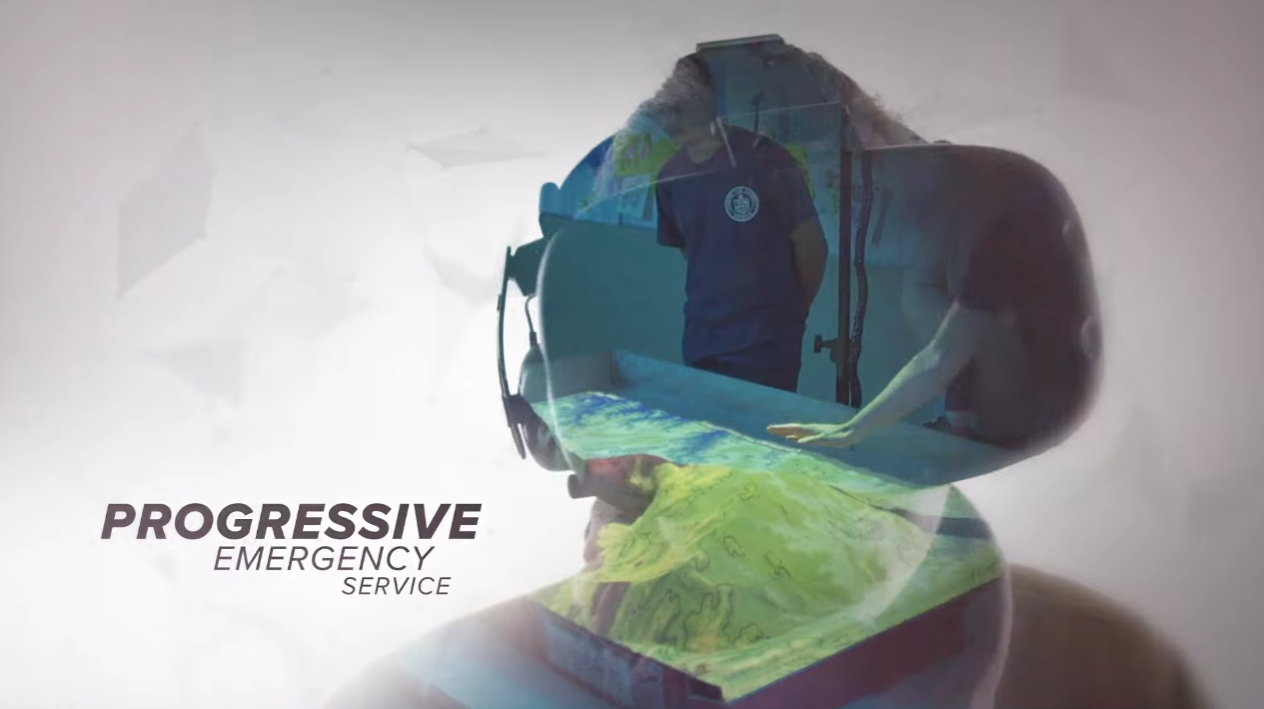 |
We are a progressive emergency service |
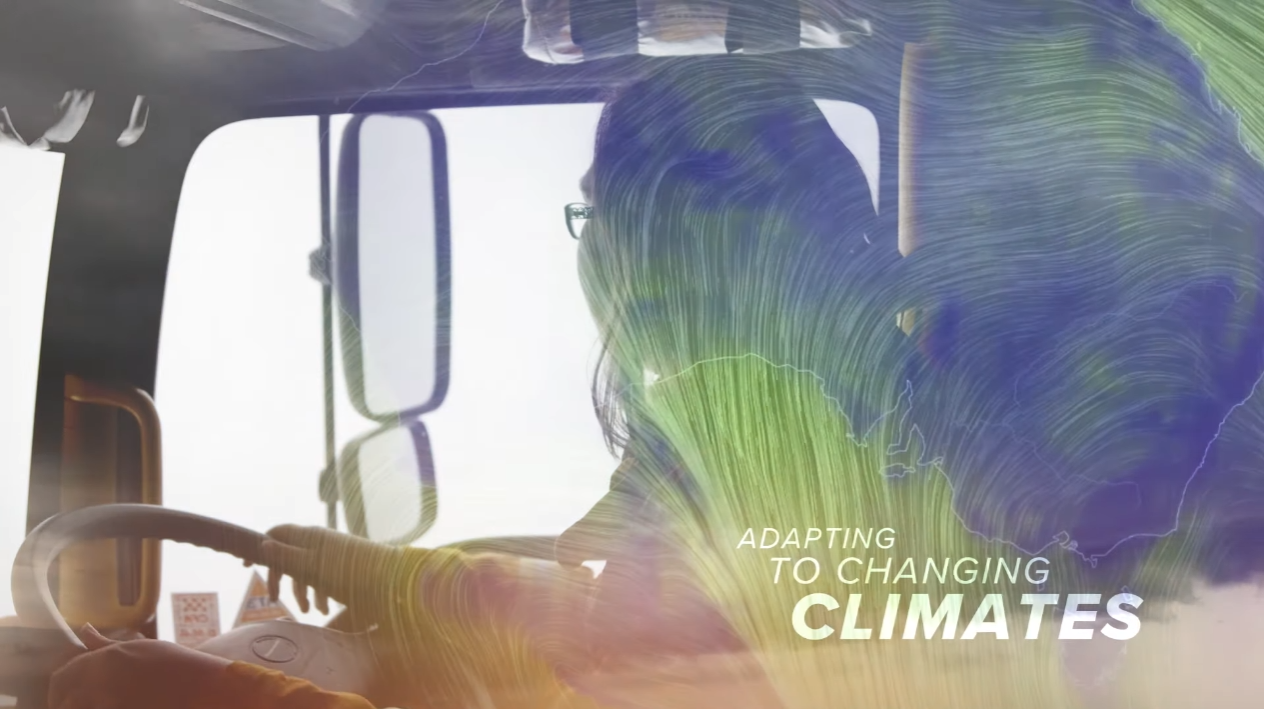 |
Adapting to changing climates and new threats |
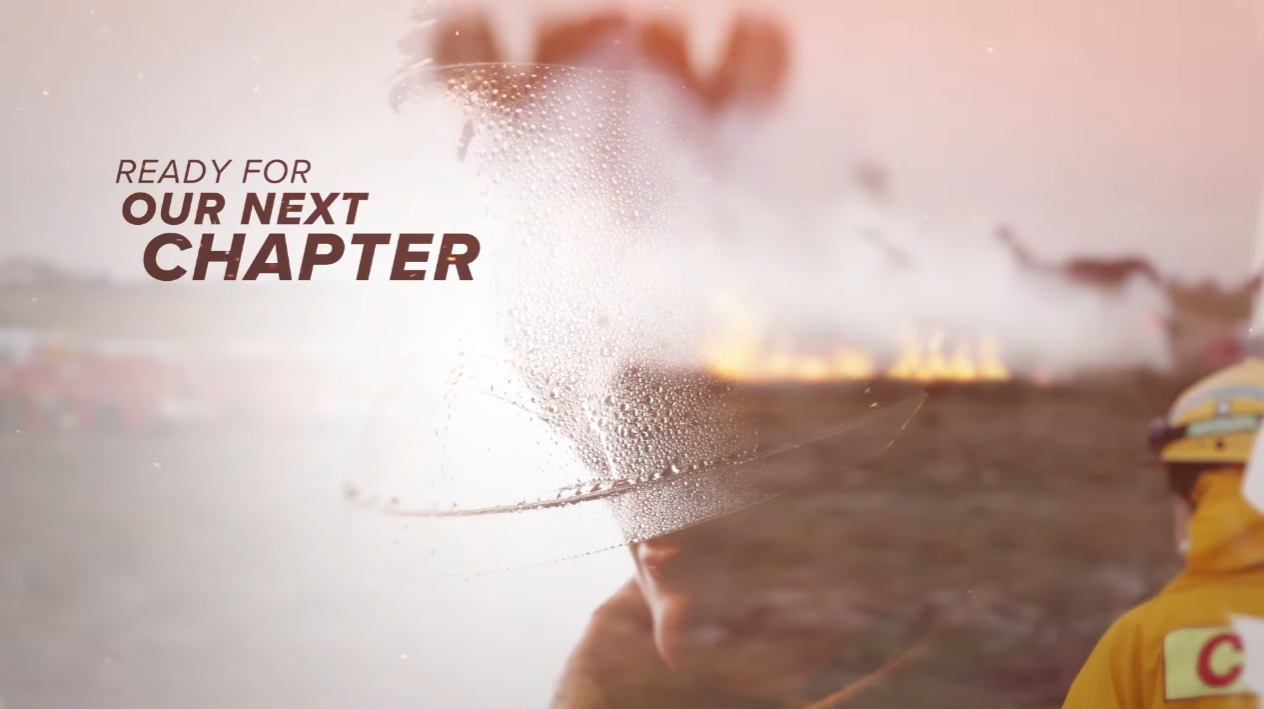 |
We are ready for the future and our next chapter as a proud fully volunteer fire service |
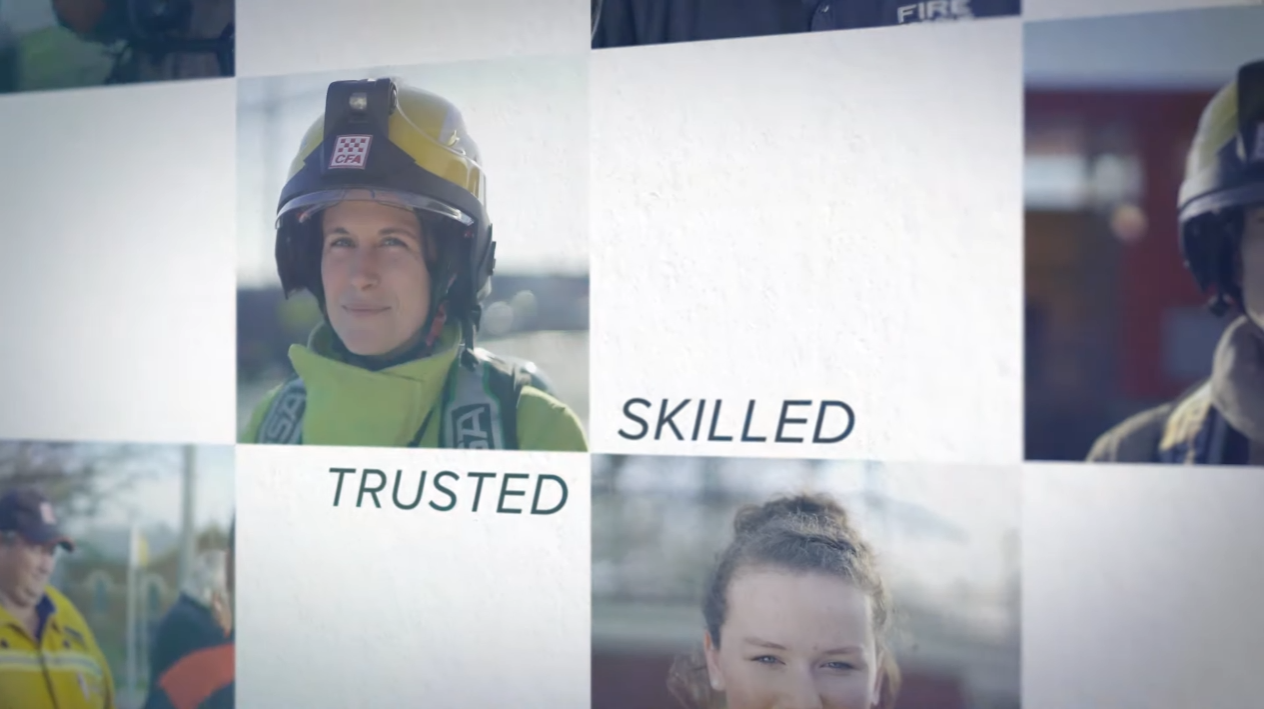 |
Our people... |
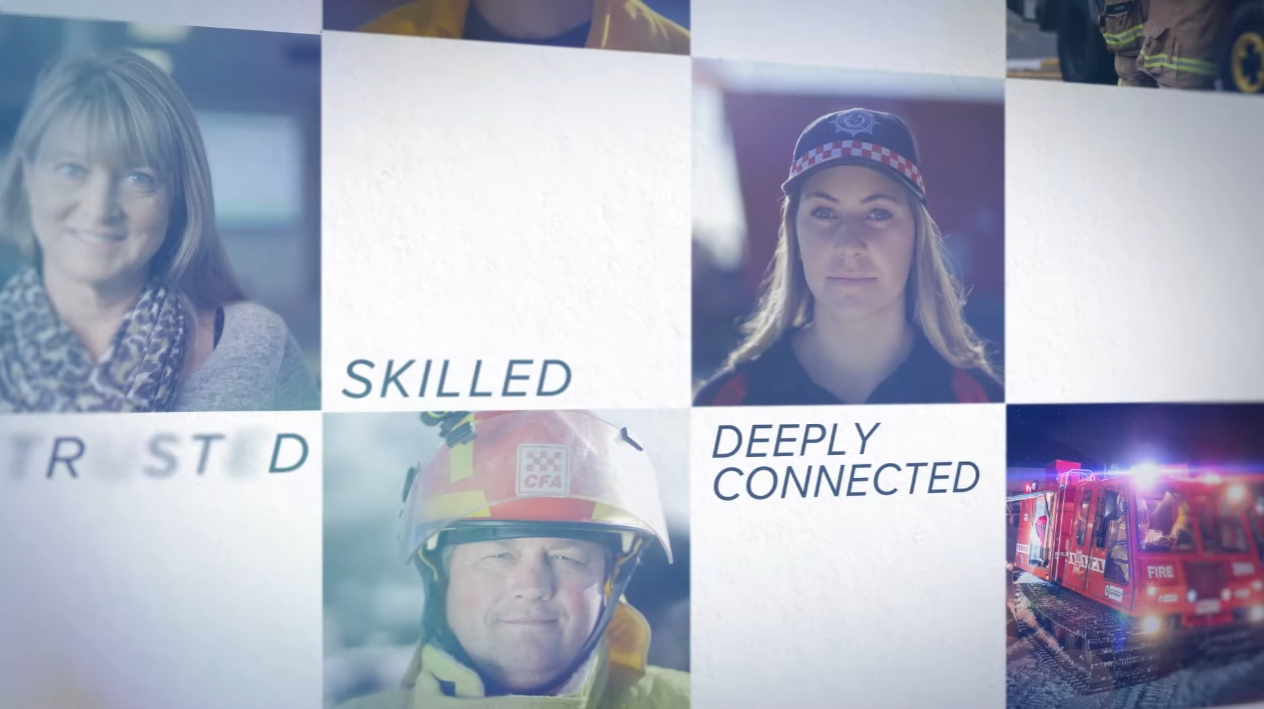 |
...are what makes... |
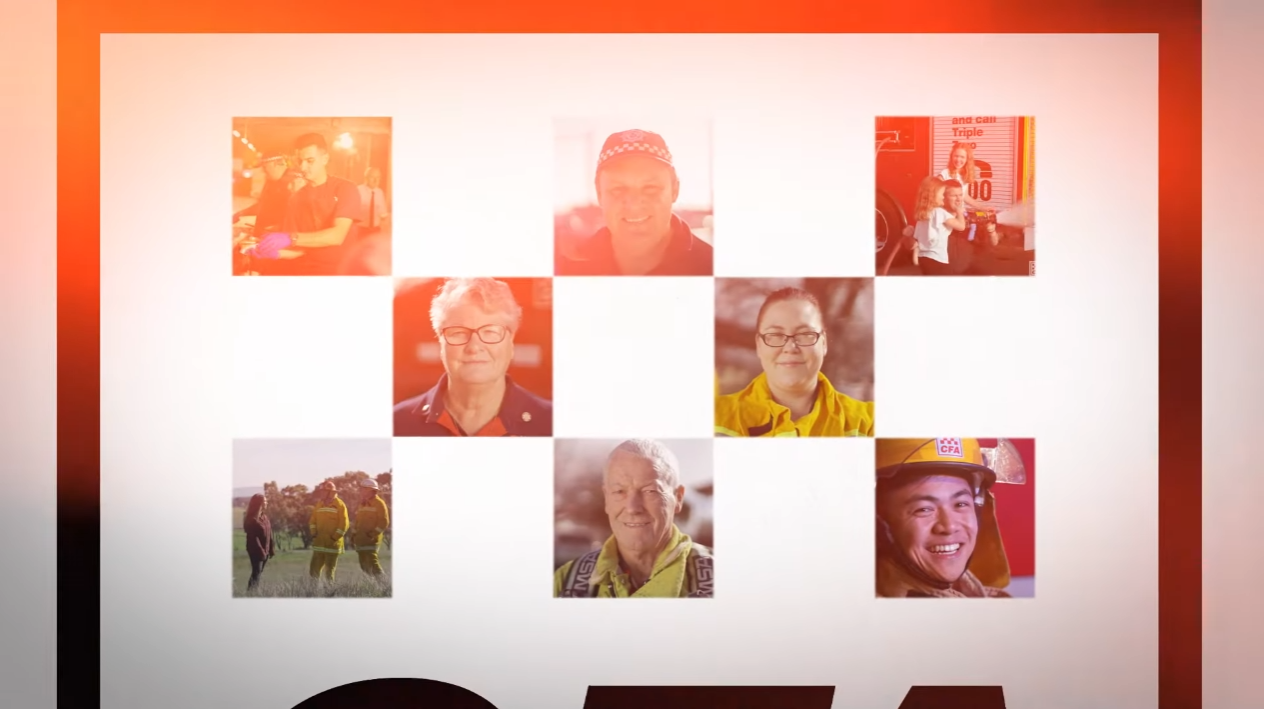 |
...CFA what it is today |
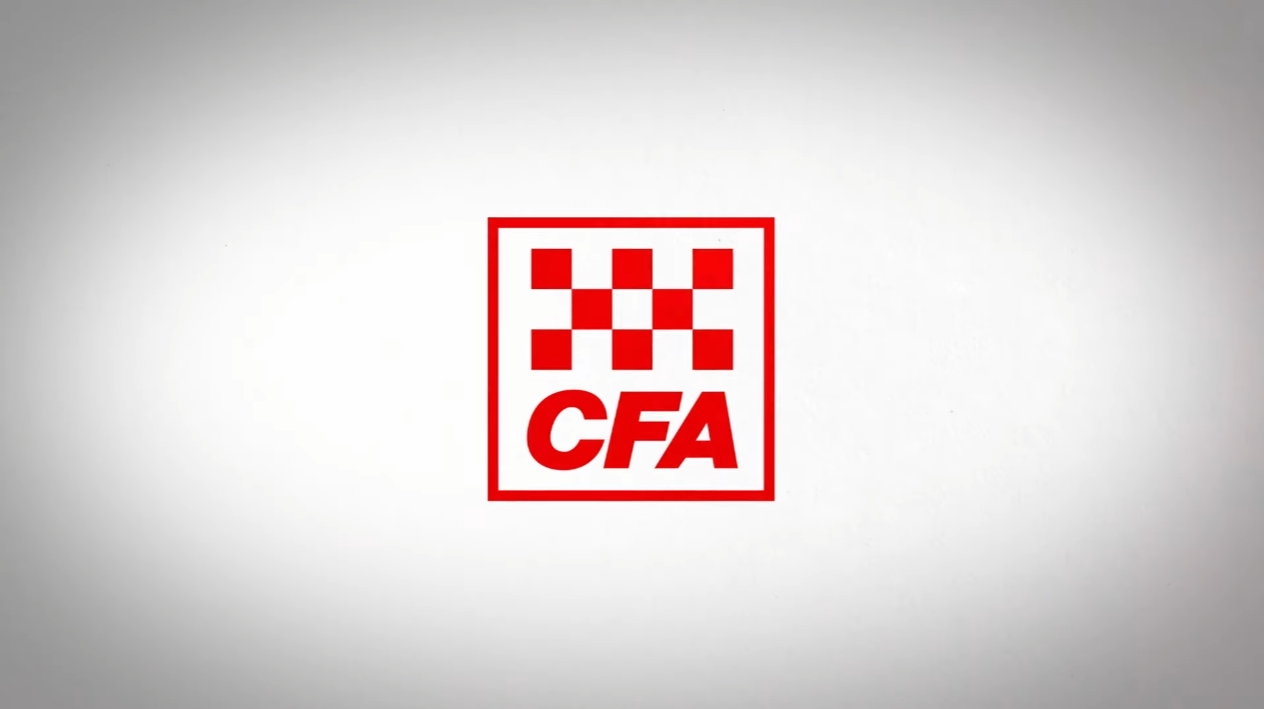 |
Our Community. Our CFA |
Are they really ok?
By Adam Barnett, VFBV Chief Executive Officer
R U OK? Day falls on the 9th of September this year. This year’s message is ‘Are they really OK? Ask them today.’
R U OK? is a national suicide prevention initiative that encourages Australians to connect with people in the community, your colleagues, friends, family, and loved ones – encouraging them to generate constructive discussion about issues such as suicide, depression, isolation and mental illness.
The aim is to encourage people to stay connected and have meaningful conversations that can help others through difficult times in their lives.
The R U OK? charity has some terrific resources to help equip you for those conversations, and some coaching to help get you ready to have a conversation which could literally change someone’s life.
Available from www.ruok.org.au resources walk you through four easy steps of; ask; listen; encourage action; and check in. There are webinars and role plays to help you, and a really important section in the ‘How to Ask’ area that can help you get ready. Questions such as if you are ready to ask, are you prepared for where the conversation may go and how best to pick your moment and environment.
Remember, that all members including your immediate family members have free access to CFA’s wellbeing and welfare services 24 hours day, 7 days a week. You can access these via 1800 959 232 or via www.cfa.vic.gov.au/wellbeing
This year’s R U OK? day is a great reminder of the incredible power each of you have to make a real difference in someone else’s life. You don’t need to make a big song and dance about it, but if you have noticed someone in your life who might be experiencing some personal difficulties or is struggling with life’s current uncertainties (COVID-19 isolation for example) your genuine support and compassion can have a huge influence. Use R U OK? day to remind ourselves not to wait until someone is visibly distressed or in crisis before we act and check-in.

VACCINES
We are receiving some enquiries asking whether VFBV is pursuing mandatory vaccination for CFA members. At this stage, while we are not pursuing mandatory vaccination, we are very supportive of encouraging members to be vaccinated as soon as possible.
Early discussions at Board and State level have indicated it is still too early to consider mandating. The looming fire season remains our focus, with national vaccination targets providing a good baseline and aspirational target for this year. Ensuring all members who want a vaccine have adequate opportunity to receive it remains the best strategy to drive the numbers up.
VFBV was at the forefront of vaccine advocacy, leading the charge for the inclusion of all emergency management volunteers under priority 1B of the national vaccination roll-out plan. And while we have had access to Priority 1B vaccinations since the 22nd March 2021, not everyone has had the same access and opportunity. Early vaccination hubs were predominately only available in metro areas while vaccine supply has only markedly improved over recent times.
In essence, CFA is an essential service whose sole role and purpose is to protect lives and property. Therefore, any discussions that start excluding people or creating artificial barriers that have the potential to impact on our essential service delivery to our communities is not something to take lightly. It deserves deep thought and analysis and respect for the complex policy setting that such decisions exist within.
CFA is also not an island. We work alongside many other partner agencies on the fireground, meaning we must adopt a sector wide approach.
Philosophically, we also need to consider whether it is the role of organisations, agencies or private enterprise for that matter to be stepping into the health space and introducing what amounts to potentially a significant incursion into the right of people to withhold consent for something affecting their bodies.
This isn’t an anti-vax position. In fact, for context - I’ve been fully vaccinated for many months now, and by the time you read this the entire VFBV Board is also fully vaccinated. But there is a big difference between encouraging vaccination vs mandating it.
CFA is the largest emergency service in Victoria. We are a broad and diverse organisation. We have room to always strive to be as inclusive as possible. There may well be a time when mandatory vaccination is well supported, and our public health bodies make the recommendation like what is happening in high-risk sectors such as health. But the place for those decisions is squarely within the institutions of our parliamentary democracy with appropriate checks and balances in place, including judicial review and oversight.
There may very well be some activities where vaccination is going to be preferred.
For example, there have already been recent occasions where residents have requested smoke detector installation by fully vaccinated members due to the resident having some underlying health concerns. And where we can - we should respect these requests.
It is also likely we will see some preferences emerge for vaccinated members for some activities like cross border and other potential higher-risk settings.
We should also not ignore other tools such as rapid antigen testing, air monitoring, and pre health screening activities that are already in use right now across the world where our northern hemisphere agencies are already well advanced in their summer fire seasons and dealing with much larger outbreaks.
I acknowledge some of these discussions are already occurring. A fellow volunteer remarked to me recently that they would only be going on a strike team if every single other member on the strike team was fully vaccinated. I’m sure this position is shared by many.
The question is - what if it was your community on fire or under threat and we couldn’t send enough fire trucks because we were standing around figuring out who should and shouldn’t attend? With recent drops in volunteer numbers, extended fire seasons and increased requests for mutual aid, we need to think very carefully about anything that reduces our response capacity.
Emergency response activities have not been super spreader activities to date. In fact, in all settings where there are strict COVID safety protocols, proper use and discipline of wearing PPC, physical distancing and proper hygiene controls – these have all proven very effective. Our brothers and sisters in Victoria Police and Ambulance Victoria are dealing with thousands more occasions where they are interacting with potential cases every day. I say this not to understate the risks, but rather put them into perspective. As far as fire brigade activities are concerned, you’re more likely to be involved in a road accident on your way to the call than catching COVID-19. Our policy response needs to be proportionate to the risk.
I guess what I am trying to say is there are already enough things that try to pit us against each other without having to add to the list. It is a very 2020 type notion that these days people are either only ‘for’ or ‘against’ things. Public discourse and debate seem to be led by what can fit on a meme or in a 140 character insult, with victory deemed to the ‘loudest’.
Let’s respect the inherent complexity of the issue and commit to some genuine and robust discussion and dialog to help inform our views. Please use your brigades and District Councils to start the discussions so we can understand the pros and cons.
I would urge people not to try and hastily reach consensus or positions, but rather encourage participatory discussions where we can learn from one another. Conversations that promote divergent thoughts and thinking, allowing alternate views to be respectfully considered, and genuine informed discussion that respects and acknowledges the broad diversity of thought amongst the membership.
Having said all that I would ask that all members please seriously consider being vaccinated. If you are unsure or have concerns or family histories that make vaccination high-risk, they are all legitimate concerns. Informed consent is just that. Informed.
And with the greatest of respect - social media or the internet is not always the best source of reliable and factual advice, so if you are hesitating - please discuss your individual circumstance with your doctor. And for those waiting for something better - the best vaccine is likely the one you have access to today.
To those who are vaccinated, please be kind and respectful to those who may not be. Vaccination is a very personal decision. You won’t change minds by simply insulting people or driving them away.
The strength of VFBV is the willingness of members and delegates to challenge, be inclusive, inspire, and pioneer new ways of doing things - all the while maintaining our compassion and empathy.
This month I have chosen two quotes fitting of this month’s discussion. The first from Franklin D. Roosevelt, and the second by Eleanor Roosevelt.
FDR is the only US President to have served more than two terms, having been elected four times and serving as President between 1933 and 1945, encompassing the Great Depression and World War II.
Eleanor served as First Lady to FDR, but earned the tribute ‘First Lady of the World’ by President Truman in recognition of her work as a diplomat to the United Nations and her human rights achievements.
“Human kindness has never weakened the stamina or softened the fiber of a free people. A nation does not have to be cruel to be tough.” Franklin D. Roosevelt
“Great minds discuss ideas. Average minds discuss events. Small minds discuss people.” Eleanor Roosevelt
Postponement of AGM
After reviewing the current Victorian Health Guidelines, the Australian National Plan to Transition National COVID Response and advice from Consumer Affairs Victoria, the VFBV Board have authorised a three-month extension and postponed this year’s Annual General Meeting (AGM) to December 2021.
Planning has commenced to hold this year’s AGM to coincide with the December State Council meeting, currently scheduled for Sunday 5th December 2021. Further details of arrangements will be provided closer to the date.
The Board has also endorsed and approved State Council’s recommendation that all Board, State Council and Welfare Fund office holder’s terms that were due to expire in October 2021, will be extended through to December 2021.
Quarterly Supplement
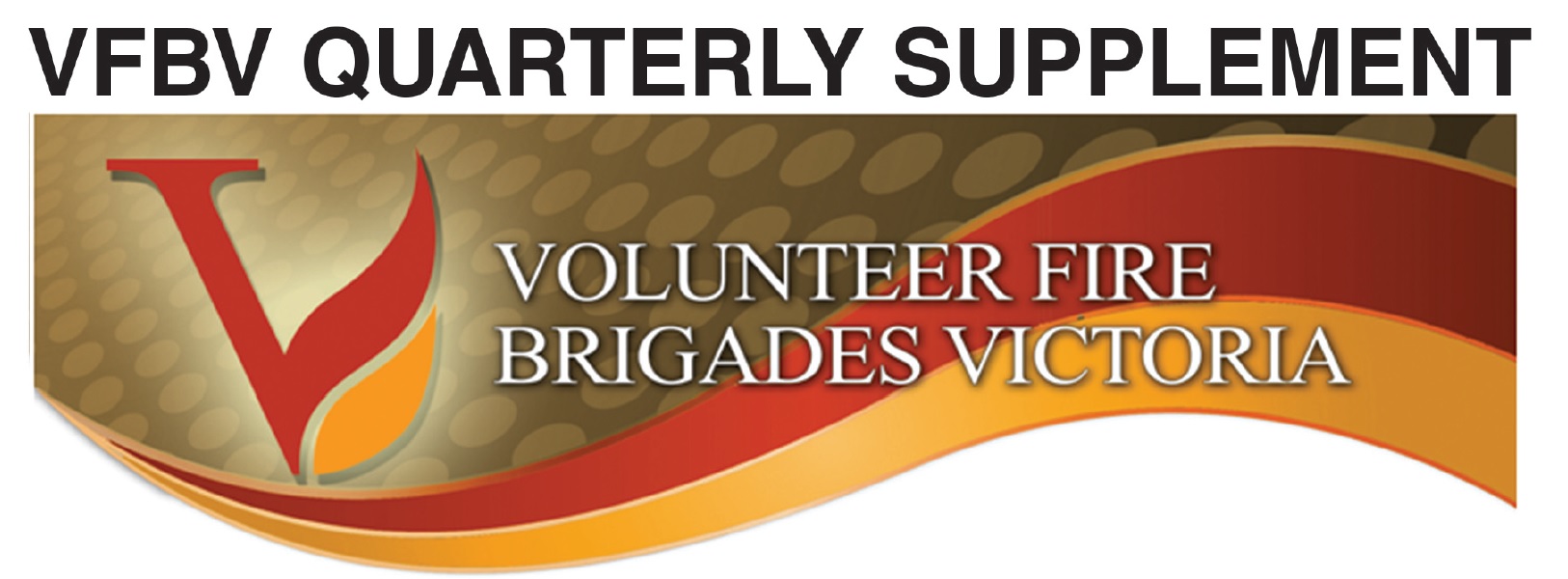
Included with the September 2021 edition of Fire Wise was the eighth edition of the VFBV Quarterly Supplement.
The Quarterly Supplement contains 16 pages of relevant news, updates and information on current issues being pursed by VFBV on behalf of members. It also includes links to additional resources or updates that are available via our website.
An electronic copy of the Quarterly Supplement can be downloaded here.
Brigade Captains and Secretaries, Group Officers and Group Secretaries as well as VFBV delegates are requested to please take the time to read this and future editions, and to table at your upcoming meetings for the benefit and knowledge of your members.
Survey pre-registration
This year’s VFBV Volunteer Welfare and Efficiency Survey is about to open. Volunteers can pre-register now to ensure you are amongst the first to be notified of this year’s survey.
Register here or via the QR code below.

Structural training concerns
VFBV continues to receive communications from Brigades expressing concerns that access to structure firefighting courses is increasingly difficult with CFA not running enough courses to meet demand.
VFBV continues to raise this directly with CFA, sighting many reasons why this training is so important to Brigades and the safety of all members. CFA has reported that course and training planning/ delivery is the responsibility of individual Districts with ACFO’s being accountable for these activities.
We encourage brigades who are having issues with training plans or course scheduling to speak directly to your Districts in the first instance and escalate through your VFBV District Councils where required.
VFBV will continue to advocate for structural training availability to be increased in line with brigade expectations and will support any brigade requiring assistance with escalation.
Essential training
All members are reminded that core operational training and skills maintenance is classified as an essential activity for the purposes of CFA COVID Response level 2.
Training must be conducted in a COVID safe manner and must satisfy the requirement that it is core to maintaining operational capability.
There is automatic approval for activities required to meet the CFA Chief Officer’s pre summer requirements and brigades should continue to use the adapted burn-over drill procedures that were introduced to apply physical distancing so the drill can be conducted safely within COVID safe protocols.
All formal skill acquisition courses and assessment are to be approved by the ACFO with essential training continuing to be available except in those areas operating under a COVID Response level 3.
Brigades are encouraged to discuss their requirements with their ACFO and consider modifying training activities to small groups on alternating days of the week to avoid large gatherings.
Training must be completed prior to curfew in metro areas operating under a curfew. Online resources are available to assist with blended learning.
VFBV District Councils are available to assist with any brigade that believes that their essential training request has been inappropriately denied.
Joint Committee EOI
Expressions of interest are now open for volunteers to nominate as subject matter experts to the VFBV/CFA Joint Committee’s for the 2022 calendar year.
If you feel you can contribute and have the time, are passionate about one of the seven streams and want to be an integral part of our Joint Committee process – then please talk to your local VFBV State Councillor or VFBV Support Officer for a nomination form.
Nominations are due to your District Council early November 2021.
AFSM Nominations
Nominations for the Australian Fire Service Medal (AFSM) for the 2022 Queen’s Birthday honours list are now open.
The award recognises those whose service is above and beyond the normal zealous and faithful discharge of normal or ordinary service, either in the short or long term. While volunteers are often modest and reluctant to seek out recognition for their exceptional contributions protecting lives and property, nominating a fellow volunteer to recognise their contribution is a way to say ‘thank you’ to those people who have stepped up and helped to inspire other volunteers.
A helpful guide to preparing nominations is available from the VFBV and CFA websites.
Nominations need to be submitted to CFA by 1 November 2021.
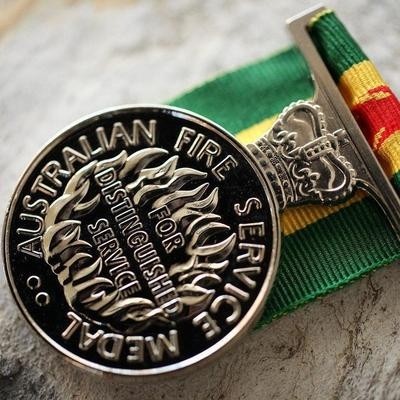
COVID-19 Resources
Available from the VFBV website is a COVID-19 financial support resources article. This article has been updated recently to ensure that the resources listed are all up to date.
A reminder also that CFA provides a lot of resources for brigades, groups and volunteers on the CFA Members website (Brigades Online). CFA’s resources include the current response levels and also links to the latest updates from CFA.
Recent articles of the VFBV website
AFSM nominations
COVID-19 financial support resources
Enjoying the VFBV monthly newsletter
If you enjoy reading the VFBV newsletter each month, why not share it with your fellow volunteers?
Either share this page with others who may enjoy the articles or encourage other volunteers to sign up to receive their own copy via email each month here.
CFA is currently accepting and encouraging nominations for the Australian Fire Service Medal (AFSM) for the 2022 Queen’s Birthday honours list.
The AFSM is a prestigious award that honours the distinguished service of members of fire services, including CFA volunteers who make an exceptionable contribution to their communities. The award recognises those whose service is above and beyond the normal zealous and faithful discharge of normal or ordinary service, either in the short or long term.
While volunteers are often modest and reluctant to seek out recognition for their exceptional contributions protecting lives and property, nominating a fellow volunteer to recognise this contribution is a way to say ‘thank you’ to those people who have stepped up and helped to inspire other volunteers.
Anyone can put forward an application for someone they think deserves to be honoured. It is however critically important that nominations are encouraged from groups who are typically underrepresented in Australian Honours including the AFSM. Nominations are particularly encouraged for potential awardee’s from non-English speaking backgrounds, people with disabilities and particularly women who are underrepresented in being honoured with an AFSM. There are many exceptional CFA volunteers who deserve to be recognised.
It is important to remember that the AFSM is not a long-service award, its sole criterion is distinguished service. Distinguished service includes service that is above and beyond and can either be short-term or prolonged. While prolonged service forms part of the key criteria, ‘prolonged’ is considered by the honours and awards committee’s to be taken in context as to what is considered ‘longer than usual’ and in context of what is ‘above and beyond’ the normal or ordinary service expected.
While it can seem daunting to nominate a potential recipient, some guiding principles that could assist in completing a nomination for an AFSM are:
- In what role(s) has the nominee excelled?
- How has the nominee demonstrated service worthy of recognition?
- How has the nominee’s contribution affected a particular field, locality, brigade, group or the community at large?
- Over what period has the nominee made a major commitment?
- Has the nominee’s contribution been recognised elsewhere?
- What makes this person stand out from others?
- What specific examples can be provided to show how the nominee’s contribution(s) have been outstanding?
Nominations for CFA members for the 2022 Queen’s Birthday honours list should be submitted to CFA by 1 November 2021, the person being nominated should not be advised of the potential nomination at any stage and all information should be gathered from other sources.
CFA calls for applications twice a year for the AFSM, therefore it is also worthwhile considering additional nominations for future awards and to start preparing nominations now in order to be prepared.
CFA Resources
Guide to preparing nominations for the Australian Fire Service Medal (AFSM)
AFSM nomination form (please note that this form has been updated recently by EMV so all applications should be submitted using the new form)
If you want to discuss a potential nomination or need additional information, contact CFA’s Awards and Recognition Officer, Belinda Gillespie This email address is being protected from spambots. You need JavaScript enabled to view it. or 9262 8842.
Criteria for the Australian Fire Service Medal
To be considered for this award it would be expected that the nominee has given service beyond the norm exemplified by:
1. Prolonged service distinguished by exceptional performance in a particular area that has proved significant benefit to the fire service; and one or more of the following:
2. Responsibility for and management of an outstanding/exceptional event that has proven to be of significant benefit to the fire service, a community or community safety generally.
3. Development of a new system, or procedure, or technique that is unique and has made a significant contribution to the fire service, a community or community safety generally.
4. Outstanding leadership in the encouragement and development of others, particularly youth, within the fire service and the fostering and furthering of the aims of the fire service to the long-term benefit of the fire service and the community.
5. Demonstrated creativity in the development and implementation of innovative changes that have made a significant contribution to the fire service, fire/emergency operations, or the interests of community safety.
Resilience and unity of purpose
By Adam Barnett, VFBV Chief Executive Officer
On day of writing, Victoria has just entered lockdown #6. I don’t want to dwell on the unavoidable impacts they have not just on people’s livelihoods but also their mental state, other than to say I want to acknowledge the many, many thousands of community members doing it tough. Both here in Victoria and elsewhere across Australia.
Volunteer fire brigades right across the country are drawn from the very same communities we protect and are therefore intrinsically linked. When the community is going through a hard time, this often washes through our brigades.
I want to acknowledge how hard it can be to be positive with so much uncertainty around.
I repeat my message that one of the great challenges through the pandemic has been how to best maintain the social and support structures that are embedded across our network of 1,217 community fire brigades. I want to acknowledge and congratulate the innovative ways brigades are coming up with to best maintain those links and keep members as connected as can be - in new COVIDSafe ways. While frustrating and far from ideal – the resilience on display across our network of brigades and amongst our members continues to inspire.
Please don’t lose sight of the fact that your local brigade is acting as a beacon of light to many within your communities. You are setting the tone, modelling calm, professional and stable leadership, civic duty and proving that our service delivery level commitment to our communities remains steadfast and can withstand the greatest of pressures. You are there when they need you and you are doing the best you can to support your communities through these challenging times.
Despite some close shaves, brigades that have been impacted by ongoing Tier 1 and Tier 2 exposure sites and close contacts over the months have used redundancies and neighbouring brigade/group relationships to ensure members can safely isolate, while ensuring brigade coverage and operation is maintained.
The true resilience and strength of community embedded fire brigades has been on full display. You have maintained an exceptional record, and while we are not yet through it, you have every right to be exceptionally proud.
Please remember that the full impacts of this pandemic impact on each of us in very different ways, and often at different times. If you are struggling, or know someone who needs help, please utilise the wellbeing and welfare services available to all CFA members and their immediate families 24 hours day, 7 days a week. You can access these via 1800 959 232 or via www.cfa.vic.gov.au/wellbeing
Financial support resources are also available from the VFBV website, which provides some quick links to both State and Federal support, including details of our Welfare Fund. A reminder that this year’s Welfare Fund subscription is being offered at a one-off 50% discount and brigade membership covers the entire brigade, all its members and even any ex-members who have served 20 years or more.
CFA RESTRUCTURE
On 2 August, CFA’s new refreshed organisational structure became effective, with interim executives in place while permanent recruitment is underway.
I want to congratulate CFA CEO Natalie MacDonald and Chief Officer Jason Heffernan on their commitment to seeking feedback and input from both volunteers and staff during their restructure, and most importantly sharing how that feedback was used and taken into account in final decisions. This represents a refreshing commitment to genuine and robust dialog and consultation.
Both Natalie and Jason have acknowledged that transition to the new structure is not a one-off event and there is still much work to progress. I also want to acknowledge that restructures can be challenging, especially for those staff directly impacted by reporting line changes etc. and I would ask members to please show some empathy and patience while individuals work through any changes that directly impact upon those people.
As volunteers, we have seen more than our fair share of change over recent times. And unlike this change, it has often been thrust upon us, with no opportunity to be involved or consulted. So I would ask you to please draw on those experiences as a reminder to be kind and patient to anyone who may be struggling with some of the unintended uncertainty that restructures sometimes create.
One of the largest changes to the structure is a renewed focus on ensuring service delivery decisions and leadership is provided at lower levels and those closest to the ground are empowered to lead. In other words – decisions impacting upon brigades and groups being predominately managed at the regional and district level – rather than at HQ level.
In many ways – this decentralisation logic is well supported by results from the VFBV Volunteer Welfare and Efficiency survey. It is clear from our survey, that typically the closer an “issue” is managed to volunteers – generally the more satisfied they are with the results. For example, on consultation, volunteer satisfaction with consultation at the brigade level records the highest satisfaction, with a large jump in dissatisfaction when asked about consultation at the Region/ District level, and then an even larger jump again in dissatisfaction with consultation at the HQ level.
This in essence is why VFBV is designed by structure to empower our local District Councils as the local face of the VFBV network. Local brigades, groups and delegates all working together to solve issues of mutual interest, with clear and formalised escalation pathways to deal with those issues unable to be resolved at the local level.
This is both our strength and curse.
Strength – in that it is one of the most effective ways to resolve issues, with most issues being sorted at the local level first. It can however be a curse. If it’s done well, it is likely you will never hear about most of the successes. Similarly, for those involved in the escalation process its often not particularly pleasant. A biproduct of the escalation process and structure means those at the higher levels of the structure (think Board and State Council) are often left with just the hardest and more difficult issues that no-one else has been able to solve. Often times these people are left to resolve some very difficult and complex issues, often exacerbated by a lack of consensus from the membership on preferred approaches. Let’s be honest - if they were easy – they would have been solved long ago by now.
Hence why you will hear me frequently paying homage to those volunteers who choose to serve at senior levels at either District Council, State Council or the Board. These members work day and night, often with very little thanks to try and resolve issues of critical importance to our volunteers. VFBV officials are usually the first-person people go to with a problem or criticism, yet they are often the last people to hear a compliment, thank you, or praise.
On the flip side, when changes are made, when good outcomes are finally realised or achieved, there is much personal pride and satisfaction drawn from knowing that if it weren’t for the hard work done behind the scenes by your officials and representatives – it would not have happened.
It’s the nature of the work, and why I respect our senior officials as much as I do, and why you should too. It can be thankless and unrewarding at times, but each person is driven by a pure and noble duty and dedication to wanting to improve arrangements for volunteers and ensure our communities are well supported and resourced to deliver a safe and effective community embedded emergency service.
The new CFA structure and focus on regional/district accountability will bring a renewed focus on consultation at the region/district level. Without careful planning, systems and processes this renewed decentralisation has the potential to feed the old beast of state-wide inconsistency and promote little fiefdoms.
We are all going to have work incredibly hard to ensure our systems and processes adapt to cater for stronger, more robust, flexible and transparent consultation occurring at the Region/District level. For our District Councils, this will mean an increased workload in local issue resolution and building productive and effective relationships with local management.
The good news, as I reported last year was I have been very encouraged to see some of the Deputy Chief Officer Regions (now called Deputy Chief Officer – Service Delivery) working hard to form structured and formalised regular meetings with their District Council Executive members and State Councillors to ensure regular dialog between the District Council and management and provide a robust mechanism to resolve issues raised by brigades and groups in a timely manner. This will now need to extend to District management, and my expectation will be to see a proactive approach taken by local management to engage with their local volunteer leadership groups, including our District Council executives.
For the wider membership, these changes will also bring an increased emphasis on helping us gather evidence to demonstrate issues of concern to try and assist with local discussions to resolve issues.
I too am working hard with Natalie and Jason to ensure we have some strengthened state level processes to help monitor consistency and equity between approaches, and am also optimistic that there are enough ‘wise heads’ across the CFA executive at both state and regional level that share a healthy respect and appreciation for the importance of genuine engagement and consultation with volunteers.
The restructure is one of the most noticeable early examples of the pivot back towards a community and volunteer focussed organisation. But its success or otherwise is just as much in volunteer hands as it is in managements.
For it to work will require commitment from all sides, and I would encourage members to embrace the change as an opportunity to return to the era of more genuine and responsive engagement and participation in the leadership of one of Victoria’s most trusted and respected services, our CFA.
It is a known fact that peer groups (like volunteer associations) who have strong shared goals are more likely to prioritise group needs over individual self-interest. It breeds better cooperation and collaboration and is strongly associated with feelings of belonging, solidarity and trust.
There is a fitting quote attributed to Bill Bradley, an American author, NBA basketballer, US Senator and US Airforce Reservist.
“Respect your fellow human being, treat them fairly, disagree with them honestly, enjoy their friendship, explore your thoughts about one another candidly, work together for a common goal and help one another achieve it. No destructive lies. No ridiculous fears. No debilitating anger.”
I will finish this month by again encouraging you to engage with your District Council, engage with your local representatives and be part of the change. We still have plenty of land mines to avoid and step over, but our greatest strength comes from our unity of purpose. Please don’t just use your District Council as a complaints box. We are at our best not only when we are working together to resolve issues of concern, but also when we are working together to pursue shared goals, aspirations and our vision for a Safer Victoria.
2021/22 Affiliations
Congratulations to the winners of the 2021/22 VFBV Affiliation Prize Draw!
Thank you to all Brigades and Groups who have paid their 2021/22 affiliations prior to 30th June this year thus making themselves eligible for the 2021/22 VFBV Affiliation Prize Draw.
We are pleased to announce the prize winners are:
1st – Welshpool Fire Brigade;
2nd – Yallourn North Fire Brigade;
3rd – Foster Fire Brigade;
4th – Tarwin Lower Fire Brigade;
5th – Woodford Fire Brigade;
6th – Boneo Fire Brigade.
The wining brigades are currently being notified and will choose in order of place drawing from the following prizes kindly donated by GAAM - G-Force Nozzle with Quick connect coupling; Gated Wye with Stortz Inlet and quick connect outlets; Root Soaker; TFT Break Apart Nozzle; or from Powdersafe - five Helmet Torches and carry case; or donated by CFA six Uniden Digital Scanners.
The number of Brigades affiliating with VFBV for 2021/22 is on track to match record numbers of past 5 years, a sign of continued strong support for VFBV’s work on behalf of all CFA volunteers.
We understand that COVID-19 restrictions are impacting when brigades can meet. If you are not sure whether your Brigade or Group’s VFBV affiliation and Brigade’s VFBV Welfare Fund subscription are up-to-date, please contact your Secretary urgently, as we encourage all those who have not yet affiliated to do so as soon as possible.
For any enquiries, contact your VFBV Support Officer, State Councillor’s or call us on (03) 9886 1141.
CFA Regulations Updated – Provisional Payments
VFBV is pleased to advise that the Country Fire Authority Regulations 2014 were updated on the 20th July 2021 to reflect the Government’s new ‘Provisional Payments’ for mental health compensation claims being incorporated into CFA volunteer compensation.
As previously reported in the February newsletter, there was good engagement established with VFBV early in the pilot with former Minister for Workplace Safety, the Hon. Jill Hennessy MP engaging with us early and encouraging our participation on the pilots steering group. VFBV was represented on the Governments Pilot Steering Committee by CEO Adam Barnett who reported good progress with wide collaboration between the agencies, departments and stakeholders involved.
Provisional payments enable Victoria's eligible volunteers and workers to access provisional payments for reasonable treatment and services for work-related/CFA related mental injuries, while their compensation claim(s) are being determined. When claims are rejected, workers and volunteers can continue to receive provisional payments for up to 13 weeks. The intent is to enable eligible volunteers and workers who suffer from a work/CFA-related mental injury to access early treatment and support while they await the outcome of their claim.
The Workplace Injury Rehabilitation and Compensation Amendment (Provisional Payments) Act 2021 came into effect on the 1 July 2021. Because CFA volunteers are not covered under WorkSafe but rather though CFA volunteer compensation, the CFA Regulations were required to be updated to mirror the arrangements for CFA volunteers. VFBV has worked with Government, EMV and CFA to ensure the regulations reflect the intent of the new provisional payments scheme. Regulations 79 and 86 have been updated, and a new Regulation 86A inserted to specifically cover interim payments.
While the Regulations were not updated until 20 July, the regulations contain a provision to apply to compensation claims made on or after 1 July 2021, ensuring there is no gap in entitlements for CFA volunteers.
VFBV commends this outcome to members. It delivers on our advocacy and commitment that CFA volunteers should be equally protected.
Position Vacant
VFBV is seeking to appoint a VFBV Support Officer to work in regional Victoria with VFBV District Councils, Brigades and volunteers to facilitate consultation, issues resolution and volunteer engagement.
The position is a state role, with emphasis and focus on providing support throughout CFA’s South West region (CFA Districts 4, 5, 6, and 7).
This is an existing position, with the incumbent moving to another Region.
In addition to relevant skills and experience, candidates will need to understand CFA and volunteerism, be good listeners; be able to facilitate good consultation; ability to establish productive networks; navigate through complex issues resolution; be self-starters and have a passion to improve arrangements that benefit the welfare and efficiency of CFA volunteers.
Extensive regional Victorian work travel is envisaged and flexible work base locations will be considered for the position, with the priority focus to assign a work location within the CFA South West Region.
Flexible working arrangements, to cater for extensive evening and weekend work, will be tailored to match the needs of our volunteer membership base.
This is a full-time position.
Prior to applying you should familiarise yourself with the Position Description which is available from the VFBV office or website.
Applications close Tuesday 31 August 2021.
Central Highlands
VFBV would like to sincerely thank all those that took the time to submit nominations for the road naming network at CFA’s new Training Ground - Central Highlands Training Ground in Ballan. VFBV coordinated the nomination process on behalf of CFA, referring all nominations for further consideration by the CFA Executive. CFA has recently confirmed that 10 nominated persons have been selected from the list to have roads named after them at Central Highlands Training Ground. CFA and VFBV are now going through the process of confirming acceptance of nominations with members and families prior to the official opening of the Training Campus.
Victoria State Emergency Service
VFBV stands in solidarity with our colleagues and fellow volunteers from VicSES.
We firmly reject any suggestion by the UFU in recent media reports concerning SES responses to Road Accident Rescue that calls into question the professionalism of any of Victoria’s emergency management volunteers. VFBV joins the Victorian SES Volunteer Association to express our support and commitment to fostering positive and cooperative relationships across the whole emergency management sector. There are well established interagency processes to raise issues of concern that ensure discussions are evidence based and documented. We note the strong VicSES agency response denying any of the alleged conduct occurred.
As the CFA volunteer peak body - we recognise and respect the incredible professionalism, dedication and skill of all emergency service workers, both paid and un-paid and how critical it is that we all work together as one, for the safety of our communities.
To VicSES volunteers, rest assured that we respect what you do and commend your high quality skills and selfless dedication to giving back to your communities and making a positive difference. Your actions during the recent storms and floods were inspiring and reminds us of how critical each and every one of you are to public safety. Thank-you and well done.
Tree Hazard Awareness
VFBV representatives were recently consulted on and provided valuable feedback on an updated Tree Hazard Awareness digital learning package which has been reviewed to include recommendations from AFAC to standardise the hazardous tree markings across the sector.
Volunteer delegates to the Joint Training Committee have urged CFA to ensure that broader communication regarding the changes and the updated Tree Hazard Awareness course are released as soon as possible to ensure all members have reasonable time and opportunity to become familiar with the new markings and complete the training if required prior to the Fire Danger Period. This includes clarification to the current 3 years expiry on Tree Hazard Awareness and any corresponding operations bulletins or safety alerts that may be released as part of the review.
Fire Wise – August 2021 online only edition
The August 2021 edition of Fire Wise has been published online only, this edition and past editions are available from the Fire Wise website.
You can support Fire Wise and the role it plays as an independent voice in keeping volunteers informed by becoming a subscriber. To become a Fire Wise subscriber visit the Fire Wise website or contact the Managing Editor of Fire Wise, Gordon Rippon-King either by phone 0402 051 412 or email This email address is being protected from spambots. You need JavaScript enabled to view it.
CFA Communications Survey
|
CFA have issued communications about their 2021 member Communication Survey. The survey is designed to understand what communications platforms you use to follow CFA updates, and how effective the various mediums are. This is a good opportunity for you to provide feedback and influence how CFA communicates with you and how often. Visit https://yoursay.cfa.vic.gov.au/member-communications to take the survey now. It takes approximately 10 minutes and closes at Midnight on Monday 16 August. |
 |
COVID-19 Resources
|
Available from the VFBV website is a COVID-19 financial support resources article. This article has been updated recently to ensure that the resources listed are all up to date. A reminder also that CFA provides a lot of resources for brigades, groups and volunteers on CFA Members website (Brigades Online). CFA's resources include the current response levels and also links to the latest updates from CFA. |
 |
Recent articles on the VFBV website
Position Vacant - VFBV Support Officer (South West)
2021 Flood and Storm Recovery Resources
Enjoying the VFBV monthly newsletter
If you enjoy reading the VFBV newsletter each month, why not share it with your fellow volunteers?
Either share this page with others who may enjoy the articles or encourage other volunteers to sign up to receive their own copy via email each month here.
VFBV is seeking to appoint a VFBV Support Officer to work in regional Victoria with VFBV District Councils, Brigades and volunteers to facilitate consultation, issues resolution and volunteer engagement.
The position is a State role, with emphasis and focus on providing support throughout CFA’s South West region (CFA Districts 4, 5, 6 and 7).
This is an existing position, with the incumbent moving to another Region.
In addition to relevant skills and experience, candidates will need to understand CFA and volunteerism, be good listeners; be able to facilitate good consultation; ability to establish productive networks; navigate through complex issues resolution; be self-starters and have a passion to improve arrangements that benefit the welfare and efficiency of CFA volunteers.
Extensive regional Victorian work travel is envisaged and flexible work base locations will be considered for the position, with the priority focus to assign a work location within the CFA South West Region.
Flexible working arrangements, to cater for extensive evening and weekend work, will be tailored to match the needs of our volunteer membership base.
This is a full time position.
Prior to applying you should familiarise yourself with the Position Description which is available from the VFBV office or for download at the bottom of this page.
How to apply
All applications must include:
- a current resume
- a cover letter addressing the key selection criteria outlined in the position description (including samples of previous written communications).
Send applications to the attention of the CEO, VFBV, 9/24 Lakeside Drive, Burwood East 3151 or email This email address is being protected from spambots. You need JavaScript enabled to view it.
Applications close Tuesday 31st August 2021.
Any questions or queries re the application process should be directed to Cathie Smith from the VFBV Office on (03) 9886 1141 or via email at This email address is being protected from spambots. You need JavaScript enabled to view it.
Any interested applicants to the VFBV Support Officer position, are also encouraged to speak to one of our existing VFBV Support Officers and/or State Councillor's who would be more than happy to give members a sense of the role.
Selfless, Courageous and Vital
By Adam Barnett, VFBV Chief Executive Officer
It would not be Victoria if we didn’t have the need to deal with wild and unpredictable weather throughout the year. Last month’s flood/ storm event caused significant widespread damage. And while the storms peaked over 9 and 10 June, the flow on flooding and damage to electricity distribution is still being felt today.
In the 24 hours to 10am Thursday 10 June, Mt Baw Baw had recorded 280mm of rain and 119kph wind gusts were recorded at Puckapunyal. As that day developed, more than 215,000 residents were without power, with thousands expected to be without power for weeks.
By the end of June, more than 550 personal hardship assistance payments had been made by the Department of Families, Fairness and Housing, and in excess of 3,890 residential customers were being assessed for continuing prolonged power outage payments. VFBV distributed a Storm/Flood Recovery Resource Fact Sheet to assist members understand what support was available.
The assistance of the Australian Defence Forces was well received, with the CFA State Logistics Centre acting as the main staging area for the distribution of generators, with a local sub staging area established at Olinda volunteer fire brigade.
On the Thursday morning alone, VicSES had received well in excess of 4,500 requests for assistance. Over the following days VicSES would record over 10,000 requests for assistance during the event, which is more than half of the average amount received in an average year.
I join my good friends at the VICSES Volunteer Association (VICSESVA) in congratulating all SES members on an incredible job and thank them for their tireless efforts. Emergency Management volunteers demonstrated yet again how critically important it is to have these emergency management capabilities and capacities within our communities. While these communities were cut off from the world, it was the local units, brigades and community organisations that were on the ground, serving their communities and doing what needed to be done. Often at times, on their own and doing the best they could with what they had.
I want to acknowledge the frustration felt by many and raised with me regarding the view that elements of local knowledge was again absent in the early stages of the State’s control arrangements. And while there are certainly differing views on whether that was indeed a perception or fact, it is a timely reminder that ensuring local knowledge is embedded within our emergency structures is critical.
In my observation, the use of local knowledge is much more than simply designating ‘locals’ within our incident management structures. It is also about linking local brigades, units and community organisations with appropriate information to triage and streamline relevant information and the collecting/ transmitting of valuable operational intel and observations.
Many of our process and systems simply rely on someone occupying a position within an IMT to establish what we think are the local linkages. However, some thought on how these linkages actually operate and how information is disseminated is key. Calls for increased focus on closing the loop and not only tapping into local knowledge but sharing how it is being used and influencing arrangements would provide stronger confidence at the local level that the structures are indeed working and local intel is influencing decisions.
Anything that increases confidence and morale during the early stages of developing incidents is certainly a key focus we will be encouraging to be raised through after action reviews. ‘Fog of war’ is a military term I often use to explain how local brigades and units operate in the early stages of developing incidents. And while great advances have been made to provide those at the top with good intel and information, the view on the ground is they have not been so fortunate. Rather than argue for one or the other, the clear message is we need both.
The Emergency Management Commissioner has certainly indicated his willingness to sit down and discuss how systems can be strengthened with local brigades and units, and these are important conversations we will be encouraging and supporting.
These local community capabilities are not built by accident, and must be cherished, respected and protected so they are there when we need them. For them to operate safely and effectively means they must be well trained, well exercised and well utilised to keep their skills and experience at the forefront and ensure all members return safely home. This is why VFBV is so passionate about empowering communities to build volunteer surge capacity, and it is one of the central obligations of government to build and support effective community capability and resilience for a safer Victoria.
Time and time again, emergency management volunteers demonstrate their intrinsic value and critical role during emergencies, and it should not just be immediately following disasters when our politicians are lining up for their media grabs.
As one would expect CFA brigades played a critical and significant role during this event. While strike teams were tasked to assist SES, I want to draw attention to the efforts and initiatives of local brigades, and the untiring and courageous work of CFA volunteers who did not stop for weeks on end.
During the height of the storms, and for many days and weeks following – entire communities were cut off by fallen trees and debris. Many CFA volunteers were cut off from their stations – as were many stations cut off from reaching all parts of their community. Volunteers were required to operate in little cells coordinating by phone or radio to get to trapped residences. Fortunately, brigade phone trees enabled Captains, Lieutenants and Group Officers to coordinate CFA crews in their private vehicles to do urgent reconnaissance and respond to urgent requests for assistance involving rescues and danger to life.
These were systems and processes created long before computer aided dispatch and pagers, and is yet another reminder of the inherent agility, flexibility and ingenuity of volunteer brigades serving their local communities.
It was also a bit of a challenge to the way things ‘are normally done’ which did create some tension and stress points within the more formalised structures and management. This serves as a really good reminder of the culture shift now underway within CFA as it adapts to a fully volunteer model.
Volunteers join to serve their communities, and when our communities need us – we are there. In the heat of the moment - they are not too bothered by the typical ‘whose job is this’ line of thinking and CFA members constantly demonstrate they can be trusted and counted on to be disciplined, safe and professional. Bureaucracy does not traditionally support or enhance this fast and decentralised command and control, so it is unsurprising that friction points often emerge during these kinds of events.
And while this can be challenging for the organisation at times, especially when we are the support agency, there is always the dual obligation to ensure we have maintained our capacity to respond to fire. I strongly support the local view that these obligations are not mutually exclusive, and history shows we can capably deal with multiple simultaneous incidents as we do all the time and have shown great capacity to stay focussed on our primary goals without rigidly sacrificing our ability to support our peers, whether that be SES, Police, Ambulance or Defence.
The same holds true for relief and recovery works. This work often cannot just sit and wait until the emergency is over, especially when we are dealing with long protracted incidents. The line between response and recovery is not a wall of steel and often both need to be occurring hand in glove with each other.
I highlight the stories of Brigades in affected communities throwing open their doors to provide central places to coordinate relief and recovery efforts. Local brigades teaming up with the Salvos to offer hot meals for residents who had lost their power or whose homes had become unsafe while community relief centres were being established and outfitted.
Brigades running door knocks to check in and monitor isolated or vulnerable community members and ensuring they were aware of critical services as lead agencies and local councils worked on clearing roads and repairing damaged infrastructure.
This is what sets CFA and SES apart and makes local volunteer brigades and units so special and so essential. It’s what attracts civic minded people to join in the first place. To actually help those in need.
For all those who think leadership is just a top-down exercise, take a long hard look at the collaboration and unity of effort demonstrated by local volunteers and crews who didn’t care what colour their PPC was, or if they were from a response agency, a relief agency or a community support organisation.
These are the stories of an organisation that doesn’t just put the community at the centre of everything it does because someone wrote it on a brochure or stuck it in an annual report. This isn’t the work of spin doctors or PR consultants. The public knows what you do, it recognises the value of what you do. And simply put – this is why volunteers occupy and have earned such a special place in the communities’ hearts and minds. You are selfless, courageous, and vital.
If Nike hadn’t trademarked it, ‘just do it’ would make a very fitting description of what CFA brigades do each and every day.
Well done to all members and bravo on a job very well done.
VFBV Recovery Taskforce
Thank you to all members who responded to the expression of interest process initiated by VFBV District 8 Council to assist with recovery efforts in District 13. While initial works were planned for Saturday 26 June, this has been postponed by request of the local brigades.
These taskforces assist residents on private property or help fellow CFA volunteers directly impacted by emergencies and fills an important gap in arrangements. These activities are supported by the VFBV Volunteer Support and Recovery Trust that provides food and consumables and are endorsed by CFA allowing CFA and brigade owned appliances and equipment to be utilised.
The current model of recovery taskforces was led by VFBV State Councillor Bill Watson AFSM following the 2009 Black Saturday Fires and has assisted local brigades and communities with recovery works that are not eligible or prioritised under state-based recovery activities. Bill was the VFBV District 13 Council President at the time of Black Saturday and saw first hand the important role practical peer-to-peer activities supported members and morale. They supplement but do not replace formal agency-led relief and recovery activities. They have been used following most large-scale disasters, not only including bushfires but also significant flood and storm events.
Further planned deployments will be advertised at the local level first. Enquiries can be sent to Bill Watson via This email address is being protected from spambots. You need JavaScript enabled to view it.
Bon Voyage
VFBV Support Officer Michelle Ryan will shortly be leaving us in her paid role to pursue some other opportunities. Her last day with VFBV will be Friday 16 July 2021.
While we are all very sorry to see Michelle go, we are also very excited for her and the opportunity to pursue some new things which she is very excited about. Michelle is staying on as a volunteer with her local brigade, and is also excited to be taking on the VFBV delegate role in her new chapter.
On behalf of Board, CEO and the whole extended VFBV family we wish Michelle all the best, and thank her most sincerely for the joy, passion and enthusiasm she has bought to the role since she commenced back in 2017. She has supported her Districts across the North East with distinction, and provided tireless support to her brigades, district councils, joint committee and volunteers throughout her entire catchment area.
We will shortly commence advertising to fill the vacancy.
In the meantime, please join us in thanking Michelle for her exceptional service and wishing her all the best in her future endeavours.
Volunteer Trainer and Assessors
Based on various feedback received from Volunteer Trainer and Assessors, VFBV representatives to the Joint Training Committee have recently made a formal request, encompassing strategy and underlining initiatives for CFA to engage in an authentic and genuine process to greater enhance the capability and recognition of Volunteer Trainer and Assessors who continue to provide an excellent service to the membership.
VFBV’s request is based on your feedback and includes recommendations from reviews into training, informal discussions and statements that have occurred in the past, including feedback from the annual VFBV Welfare and Efficiency Survey.
Suggested initiatives include, but are not limited to, identifiable helmets to be made available to all TAs, (Trainers and Assessors) funded workwear, additional PPC and genuine promotion, encouragement, recruitment, and retention of Trainer and Assessors.
DCO Training has committed to consultation on these requests and has indicated in principle support for most of the recommendations, agreeing that the recognition and enhancement of trainers and assessors is vitally important to the success of training delivery across CFA. VFBV will continue to pursue these initiatives with CFA and hope for a quick and positive outcome that will benefit everyone.
Welfare Fund
With Jenni Laing on long service leave, Kara Bishop is performing the role of Welfare Fund Secretary.
The website and all Welfare Fund forms have been updated, but those of you with old forms should now send Welfare Fund enquiries to This email address is being protected from spambots. You need JavaScript enabled to view it.
While Jenni’s address is being monitored, due to the urgent nature of welfare fund requests, it is preferable that all new applications are submitted through the welfare address.
Queen’s Birthday Honours
 |
The Queen’s Birthday Honours List announced on 14 June 2021 included seven CFA members who were awarded the Australian Fire Services Medal (AFSM) in recognition of their contribution to the community of Victoria. You can read more about each recipient on VFBV’s website here. VFBV congratulates these members for the outstanding contribution to the community of Victoria. Don’t forget that you can also submit a nomination for the AFSM to CFA’s Honours and Awards Committee at any time, more information about the nomination process can be found on the VFBV website. |
Fire Wise – July 2021 online edition only
The July 2021 edition of Fire Wise has been published online only, this edition and past editions are available from the Fire Wise website.
You can support Fire Wise and the role it plays as an independent voice in keeping volunteers informed by becoming a subscriber. To become a Fire Wise subscriber visit the Fire Wise website or contact the Managing Editor of Fire Wise, Gordon Rippon-King either by phone 0402 051 412 or email This email address is being protected from spambots. You need JavaScript enabled to view it.
VFBV Board Vacancies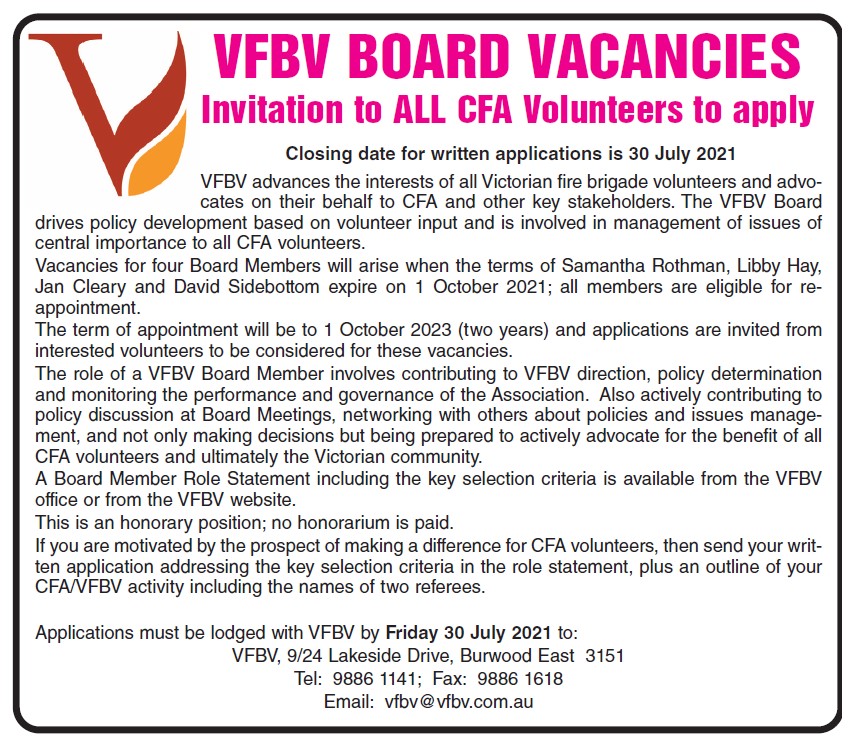
COVID-19 Resources
 |
Available from the VFBV website is a COVID-19 financial support resources article. This article has been updated recently to ensure that the resources listed are all up to date. A reminder also that CFA provides a lot of resources for brigades, groups and volunteers on Brigades Online. CFA's resources include the current response levels and also links to the latest updates from CFA. |
Recent articles on the VFBV website
Queen’s Birthday Honours 2021
2021 Flood and Storm Recovery Resources
Enjoying the VFBV monthly newsletter
If you enjoy reading the VFBV newsletter each month, why not share it with your fellow volunteers?
Either share this page with others who may enjoy the articles or encourage other volunteers to sign up to receive their own copy via email each month here.
Issued/Updated: 15 June 2021
The following Fact Sheet has been prepared to assist members navigate the various sources of assistance that we are currently aware of in relation to the Victorian Flood/Storm event of June 2021. Information concerning relief and recovery assistance is very dynamic and frequently being updated. This update provides a snapshot of current resources available to assist with member enquiries.
| Flood, Storm, Tsunami and Earthquake Emergency |
| 132 500 |
| For life-threatening emergencies call Triple Zero (000) |
| For non emergency incidents call the Police Assistance line 131 444 |
GENERAL
The Victorian Government has announced Personal Hardship Assistance Program emergency relief payments are available to help meet immediate needs, including emergency food, shelter, clothing and personal items. Information on how to access the relief payments, along with other recovery information can be found on the Vic Emergency website www.emergency.vic.gov.au/relief
VicEmergency Hotline: free call 1800 226 226 for warnings and recovery information, including emergency relief assistance grants for hardship.
VicEmergency app or www.emergency.vic.gov.au
Road Closures - Visit VicTraffic at traffic.vicroads.vic.gov.au for main road closures. For urgent road hazards call 13 11 70.
Assistance may be available in the following local Government areas:
| Ballarat | Bass Coast | Baw Baw | Bayside |
| Bendigo | Boroondara | Campaspe | Cardinia |
| Casey | Central Goldfields | Dandenong | East Gippsland |
| Frankston | Glen Eira | Hepburn | Hume |
| Kingston | Knox | Latrobe | Loddon |
| Macedon Ranges | Manningham | Maroondah | Mitchell |
| Monash | Mornington Peninsula | Mount Alexander | Murrindindi |
| Nillumbik | Port Phillip | South Gippsland | Stonnington |
| Wangaratta | Wellington | Whitehorse | Whittlesea |
| Yarra Ranges |
GOVERNMENT RELIEF AND RECOVERY ADVICE
Emergency Relief and Recovery Victoria – Information regarding State level support services and programs to assist families, businesses and farmers affected by emergencies across Victoria. www.emergency.vic.gov.au/relief
Department of Health & Human Services (DHHS) Victoria - Financial Crisis Support – provides links to immediate assistance for individuals, including accommodation, food and clothing as well as the Personal Hardship Assistance Program (PHAP) services.dhhs.vic.gov.au/financial-crisis-support
Department of Human Services (DHS)/Centrelink – Commonwealth - Provides information on support and services that may be available if you are experiencing severe financial hardship, recovering from a disaster, or in need of special assistance. humanservices.gov.au/customer/subjects/crisis-and-special-help
DISASTER RECOVERY FUNDING ARRANGEMENTS (DRFA)
The joint Australian, state and territory government Disaster Recovery Funding Arrangements (DRFA) provide a range of financial assistance to the natural disaster-declared areas in each state or territory.
For the storms and floods which impacted central and eastern Victoria, the available assistance measures include:
- personal hardship and distress
- personal and financial counselling
- counter disaster operations
- removal of debris from residential properties
- restoration of damaged essential public assets.
For information on available recovery assistance, visit the VIC Emergency website.
For further information on recovery arrangements, visit the Disaster Recovery Funding Arrangements 2018 page. (These are the arrangements in place since 2018)
The Department of Foreign Affairs and Trade will replace passports that have been lost or damaged in declared natural disasters free of charge, visit the Department of Foreign Affairs and Trade website.
DISASTER RECOVERY ALLOWANCE (DRA)
The Disaster Recovery Allowance (DRA) is a short-term income support payment to assist individuals who can demonstrate that their income has been affected as a direct result of a disaster.
The DRA assists employees, small business persons and farmers who experience a loss of income as a direct result of a major disaster.
You might be eligible for a maximum of 13 weeks payment from the date you have or will have a loss of income as a direct result of a disaster. The DRA is taxable.
For further information regarding DRA and eligibility requirements visit Services Australia.
Australian Securities & Investment Commission (ASIC) - Fee Relief – in the case of natural disaster, ASIC can review late lodgement and late payment fees incurred as a result of matters outside your control and waive them in some circumstances. asic.gov.au/for-business/payments-fees-and-invoices/fee-waivers/
Australian Tax Office (ATO) - Dealing with disasters – an ATO portal linking to information regarding ways that individuals and businesses can manage tax obligations following a disaster. ato.gov.au/Individuals/Dealing-with-disasters
GIPPSLAND EMERGENCY RELIEF FUND (GERF)
Gippsland Emergency Relief Fund provides immediate financial assistance to residents who suffer loss or hardship as a direct result of an emergency that occurs within the Gippsland region.
The fund focuses on providing for personal losses such as people’s immediate requirements for food, shelter, clothing, utensils, furniture, bedding, children’s educational needs, etc, as distinct from capital items covered by insurance or government grants.
Help and assistance by GERF is provided to people in need as a result of bushfire, flood or other acts of nature that affect their principal place of residence.
Residents affected by the floods should contact their local Council Municipal Recovery Manager, who will assess the applicant’s situation and make a referral to GERF where applicable or visit Website: www.relieffund.org.au
Affected Council contact numbers are listed below.
East Gippsland Shire Council: (03) 5153 9500
Wellington Shire Council: 1300 137 218 (Recovery Office line)
Latrobe City Council: 1300 367 700
Baw Baw Shire Council: 03 5624 2411
YARRA RANGES
Urgent relief needs including food & alternate accommodation: Call Council on 1300 368 333
Local roads: (If you know a request hasn't been made) Call Council 1300 368 333
Main Roads: Call VicRoads on 13 11 70
On power lines: Call AusNet Services on 13 17 99
Livestock issues: Contact DELWP on 136 186
Flood or Storm assistance: Contact SES on 132 500
Hardship assistance & financial support: Contact Department Families, Fairness & Housing on 1300 475 170 or This email address is being protected from spambots. You need JavaScript enabled to view it.
TELSTRA DISASTER ASSISTANCE PACKAGE
Assistance packages are offered based on impacted locations. If you have a mobile service with Telstra, you’ll receive an SMS advising you of your eligibility. Announcements are also made locally in impacted areas. When a disaster assistance package is announced, it can include the following:
For a short-term impact, such as temporary evacuation of your home or business or a temporary fault:
- Free use of Telstra public payphones in the affected areas
- Free use of Telstra Air payphone Wi-Fi hotspots in the affected areas
- Free call diversion from an affected fixed home or business phone service to another fixed or mobile service, regardless of the carrier
- Extra mobile data for eligible post-paid mobile customers & Extra pre-paid data and free calls
For a long-term impact, such as severe damage to or loss of your home or business:
- Free call diversion from your fixed phone service to another Australian fixed or mobile service, regardless of the carrier. This offer applies for up to 6 months from the date of the disaster event
- A one-off credit up to the value of $500 incl. GST to your Telstra fixed phone account to help cover the costs of the following, if required: connection of a Telstra fixed phone service at a temporary address or Re-connection of a Telstra fixed phone service at your original address
PERSONAL HARDSHIP ASSISTANCE PROGRAM
The Personal Hardship Assistance Program (PHAP) assists people experiencing financial hardship because of a single house fire or a natural disaster related emergency such as bushfire, flood, severe storm, or earthquake.
Emergency relief assistance may be available for up to 7 days after the emergency event. A one-off payment is provided to help meet immediate needs, including emergency food, shelter, clothing, medication and accommodation.
A needs assessment is carried out by a Personal Hardship Assistance Officer to determine eligibility.
- Payments are up to $560 per adult and $280 per child (up to a maximum of $1960 per eligible family) and are distributed via a prepaid debit card that could be used to make purchases via EFTPOS or withdraw cash from bank ATMs.
- Personal hardship assistance payments are available to people whose homes are damaged or destroyed and are unhabitable.
- Contact your council or email This email address is being protected from spambots. You need JavaScript enabled to view it. for more information. In your email please include how you would like to be contacted i.e. include you mobile number or landline phone number.
Relief payments were NOT available for:
- the costs of cleaning up fallen trees or branches in people's yards
- the cost of repairing fences from fallen trees. If a tree has fallen on your house, please call the SES or your local council for more information.
- business losses or compensation for the loss of income
- the replacement of fencing
- motor vehicle repairs or towing
- paying insurance excess
EMERGENCY RE-ESTABLISHMENT PAYMENTS
Emergency re-establishment assistance is available for people who's principal place of residence (your home) is uninhabitable for more than seven days because the Victorian floods or storm damage.
If you think you may be eligible for a re-establishment payment, please email This email address is being protected from spambots. You need JavaScript enabled to view it. In your email please include how you would like to be contacted i.e. include you mobile number or landline phone number.
The assistance will be available for clean-up, emergency accommodation, repairs, rebuilding (a principal place of residence), and replacing some damaged contents.
Re-establishment assistance is available to individuals or families who do not have building (home) insurance or contents insurance. The purpose of these payments is to assist people in the community who do not have the financial means to re-establish their lives after a disaster. The payments are a helping hand and should not be considered a replacement for insurance. Assistance is being provided through the jointly funded Commonwealth-State Disaster Recovery Funding Arrangements.
Emergency re-establishment payments and insurance:
- Re-establishment assistance is available to individuals or families who do not have building (home) insurance or contents insurance.
- If an applicant has contents insurance only, re-establishment assistance may be available to assist with structural repairs to the home, rebuilding, clean-up tasks and reconnecting or undertaking safety checks on essential services such as gas, water or electricity. Assistance would not be available to replace or repair any household contents.
- If an applicant has building (home) insurance but no contents insurance, re-establishment assistance may be available to repair or replace essential household items. Assistance would not be available to undertake structural repairs, clean-up or rebuilding tasks that fall within the scope of the applicant’s insurance.
- Applicants with both building (home) insurance and contents insurance are not eligible for re-establishment assistance
VFBV WELFARE FUND

Operating since 1913, the Volunteer Fire Brigades Victoria welfare Fund provides fast small grants to CFA volunteers, long serving former volunteers and their families, who are experiencing significant financial hardship. Typical cases involve prolonged illness, bereavement, loss of earnings, or the accommodation and travel costs associated with supporting a relative in hospital.
The Welfare Fund is run under Australian Tax Office rules, independently audited, and grant decisions are made by a committee of long serving CFA volunteers. The Fund has helped close to 1,200 volunteers, with more than $1.8 million in grants made over the years.
- Grants up to $5,000
- Available to all members and long serving ex-members and their families of subscribing Brigades
- Contact to the VFBV Welfare Fund Secretary on (03) 9886 1141 This email address is being protected from spambots. You need JavaScript enabled to view it. or your VFBV Support Officer or State Councillor to discuss eligibility and application process.
CFA MEMBER WELFARE AND SUPPORT
Support services are available to all members and their immediate families:
| CFA WELLBEING SUPPORT LINE |
| 1800 959 232 |
| Providing CFA members and their immediate family access to 24 hour support 7 days a week. |
| Psychologists – Counsellors – Peer Support - Chaplains |
Lifeline: 13 11 14 - provides crisis support 24 hours a day, 7 days a week.
Beyond Blue: 1300 22 4636 - to talk with a trained mental health professional.
More...
The Queen’s Birthday Honours list announced on 14 June 2021 included seven CFA members who were awarded the Australian Fire Services Medal (AFSM) in recognition of their contribution to the community of Victoria.
VFBV congratulates these members for their outstanding contribution to CFA and the broader community.
Lesley Read AFSM – Hildene Fire Brigade
Lesley has been a CFA volunteer for 19 years and has been recognised for her work as a member of CFA’s Peer Support Team. Lesley has held many roles within her brigade including Firefighter, Secretary, Treasurer and VFBV Delegate along with being the District 12 Volunteer Peer Support Team Coordinator since 2010. It is estimated that Lesley has contributed over 1,600 hours providing support to CFA members and their families. You can read more about Lesley on CFA’s website here.
Peter Solly AFSM – Werrap Fire Brigade
With over 50 years of service to CFA, Peter has been awarded an AFSM for his service to the Wimmera and in particular the Rainbow Group as Group Officer for 28 years. Peter is known as an outstanding leader and team builder and has led the development of strategies to address declining populations and increasing the average age of brigade members in rural Victoria. You can read more about Peter on CFA’s website here.
Brian Petrie AFSM – Gembrook Fire Brigade
Brian is highly regarded within CFA and through his more than 50 years of as a volunteer has distinguished himself as an outstanding leader, trainer and mentor. Brian used his experiences from Ash Wednesday along with his passion for the development of more effecting training have contributed to raising the standard of training with CFA, particularly in relation to crew safety and bushfire behaviour. You can read more about Brian on CFA’s website here.
Alen Slijepcevic AFSM – Deputy Chief Officer, Bushfire Management
Alen joined CFA in 2012 after previous roles with both the Department of Sustainability and Environment, Forestry Tasmania and the New Zealand Forestry Corporation. Alen has been a catalyst for the development of improved bushfire risk assessment with brigades, other agencies and communities that has led to a greater focus on fire prevention and preparedness. In 2018 Alen as the elected as the President of the International Association of Wildland Fire, the first person outside the United States of America to hold this role. You can read more about Alen on CFA’s website here.
Garry Cook AFSM – Deputy Chief Officer, Specialist Services
Garry first joined CFA as a volunteer in 1981 then joined CFA’s staff in 1986. Since 1986 Garry has held many roles within CFA as an Assistant Regional Officer, Zone Reliever, District Officer, Operations Manager before joining Ambulance Victoria for seven years, then coming back to CFA to take on the role of Assistant Chief Officer and later Deputy Chief Officer and Acting Chief Officer. While at Ambulance Victoria, Garry continued to volunteer with the Tarrawingee Fire Brigade. Garry has been honoured for his exceptional strategic leadership within CFA. You can read more about Garry on CFA’s website here.
Peter Baker AFSM – Assistant Chief Fire Officer
Peter joined CFA in 1971 as a volunteer with Belmont Fire Brigade before becoming a staff member in 1983. Since, 1983 Peter has held varius roles within CFA at District level and at CFA Headquarters. Peter was key to the establishment of the Integrated Emergency Coordination Centre and its subsequent evolution into Victoria’s State Control Centre. You can read more about Peter on CFA’s website here.
Stephen Walls AFSM – Assistant Chief Fire Officer
Stephen initially joined CFA as a 17-year-old to compete in the State Championships with Korumburra Fire Brigade, five years later, Stephen began his career with CFA. Throughout his career in CFA Stephen, has become a highly qualified and experienced operational officer, who specialises in command and control structures and incident management. You can read more about Stephen on CFA’s website here.
VFBV congratulates these seven CFA members for their outstanding contribution to CFA and the broader community along with all other Australians recognised in the Queen’s Birthday Honours this year.
Other Victorian firefighters to receive the Australian Fire Service Medal honour in the Queen’s Birthday Honours were:
- Kelly Rush – Department of Environment, Land, Water and Planning
- Simon Scharf – Fire Rescue Victoria
- Steven Watts – Fire Rescue Victoria.
VFBV congratulations these follow fire service members for their outstanding contribution to the state of Victoria.
Nominations for AFSM's
Nominations for AFSM's are accepted at any time through CFA's Honours and Awards Committee.
The AFSM honours the distinguished service of members of fire services who make an exceptionable contribution to their communities. The AFSM recognises those whose service is above and beyond the normal zealous and faithful discharge of normal or ordinary service, either in the short or long term.
CFA volunteers are often modest and reluctant to seek out recognition for the service they have provided to their community and may not have a realistic appreciation of the impact they have had on CFA, their community, within VFBV or your Brigade or Group. They’re not in it for the honour or glory, but it’s up to each of us to ensure we take the time to say ‘thank-you’ to those people who have stepped up and help inspire us all to do better.
If you know a quiet achiever who has contributed to CFA, who goes above and beyond what could be reasonably expected of someone in a similar position, please consider nominating them for an AFSM.
The Australian Honours system has been designed to break down artificial barriers and open the Australian Honours to all parts of our society. Any member of the community can nominate any other Australian citizen for an award.
It is also critically important we encourage nominations for groups who are typically under-represented in Australian Honours like the AFSM. In particular we are encouraging a greater gender mix.
Women in particular are under-represented in AFSM’s awarded when we consider the thousands of women within the fire services across the country. And while things are improving, much more can be done.
There are so many exceptional CFA women and men deserving to be recognised, so please consider nominating someone you feel is deserving.
A common misconception is that only those members who have decades worth of service are recognised by the Honours system. The AFSM is not a long-service award, its sole criterion is distinguished service. And while prolonged service forms part of the key criteria, ‘prolonged’ is considered by the honour and awards committee’s to be taken in context as to what is considered ‘longer than usual’ and in context of what is ‘above and beyond’ the normal or ordinary service expected. Exceptional service that is sustained over a period of time can be considered as satisfying the criteria. For example, has the members contribution been in excess of expectations for a ‘normal’ member and over what duration? The Committee will consider the nature of the service or achievement within the context of a member’s service history when weighing up the various criteria.
This is especially important for women within CFA who may have their service overlooked simply because they haven’t been a Captain or Group Officer for 30+ years. While these are important leadership roles – our service is a team environment, and everyone’s contribution is valued.
Nothing should take away from the incredible achievement decade long service is, but the Honours system is designed to recognise those that make a significant contribution, and to represent the things that our communities believe to be deserving of recognition, including from those who are perhaps trailblazers for others to follow. Think of those people who have pushed the boundaries or have been first to reach and hold leadership positions that has been inspirational to those around them. For example, think of members who have overcome additional barriers, like English not being their first language and who have toiled away to learn the language and become masterful communicators designing new innovative community safety engagements to CALD communities and serving as a role model for other community members. Who are the people you look up to? Who are the people who have really made a difference in your Brigade or Group?
Distinguished service includes service that is above and beyond and can be short-term or prolonged. It is service that can be exemplified by; responsibility for an outstanding event that has proven to be of significant benefit to the fire service or community; development of a new system, procedure or technique that is unique and made a significant contribution to the fire service; or outstanding leadership in the encouragement and development of others, particularly youth within the fire services.
While it can seem daunting to nominate a potential recipient, some guiding principles that could assist in completing a nomination for an AFSM are:
· In what role(s) has the nominee excelled?
· How has the nominee demonstrated service worthy of recognition?
· How has the nominee’s contribution affected a particular field, locality, brigade, group or community at large?
· Over what period has the nominee made a major commitment?
· Has the nominee’s contribution been recognised elsewhere?
· What makes this person stand out from others?
· What specific examples can be provided to show how the nominee’s contribution(s) have been outstanding?
Nominations for awards are strictly confidential. The person being nominated should not be approached for information or advised of the confidential nomination at any stage of the process.
Additional Resources to Assist
Guide to Preparing Nominations for the Australian Fire Service Medal (AFSM)
AFSM Nomination Form
Want to discuss a potential nomination or need some more information? Contact This email address is being protected from spambots. You need JavaScript enabled to view it.
About the Australian Fire Service Medal
Introduced in 1988, the Australian Fire Service Medal recognised distinguished service by members of Australian fire services and is awarded to both volunteer and paid members. The award recognised the distinguished service by members of a State or Territory Fire Service, a Fire Service of an agency of the Commonwealth, and the Fire Services of the External Territories of Christmas Island, Cocos (Keeling Island) and Norfolk Island.
The medal is awarded twice a year as part of the Australia Day award and Queen’s Birthday award announcements.
Criteria for the Australian Fire Service Medal
To be considered for this award it would be expected that the nominee has given service beyond the norm exemplified by:
1. Prolonged service distinguished by exceptional performance in a particular area that has proved significant benefit to the fire service; and one or more of the following:
2. Responsibility for and management of an outstanding/exceptional event that has proven to be of significant benefit to the fire service, a community or community safety generally.
3. Development of a new system, or procedure, or technique that is unique and has made a significant contribution to the fire service, a community or community safety generally.
4. Outstanding leadership in the encouragement and development of others, particularly youth, within the fire service and the fostering and furthering of the aims of the fire service to the long-term benefit of the fire service and the community.
5. Demonstrated creativity in the development and implementation of innovative changes that have made a significant contribution to the fire service, fire/emergency operations, or the interests of community safety.
Rationality and Excellence
By Adam Barnett, VFBV Chief Executive Officer
As at time of writing we have just entered week two of Victorian lockdown number four. I want to acknowledge the impact these lockdowns have on not just our personal and professional lives, but the significant impact on our CFA and emergency response duties.
While it may not feel like it now, the resilience and redundancy on display across our network of 1,217 volunteer fire brigades across the State is one of the few good news stories to come from this pandemic.
The fact our systems and processes have been able to adapt and respond to these significant periods of upheaval is a real testament to your unwavering commitment to your communities.
Small outbreaks within our networks have been quickly minimised and stamped out, with brigades showing the utmost discipline in doing what is required to contain and isolate but ensuring redundancies are in place to ensure our service to the community remains unaffected. All without any fuss or fanfare. Thank-you and well done.
For those of you impacted by closures, unemployment, underemployment, small business pressures or supply line shortages etc that are causing financial pressures – please don’t feel alone. Councillors, peers and chaplains are all available through the CFA Member Assistance Program and services are available to not only all members but your immediate families as well. It’s free and confidential and can be accessed via 1800 959 232.
The program offerings have evolved over the years but are based on a foundation principle that your mental health is just as important as your physical health. Acknowledging the holistic nature of mental health and the myriad of influences and contributing factors across our busy lives, these services are not just focussed on CFA or brigade related matters.
For example, solution focussed counselling can assist you with strategies and solutions to manage work or personal issues which may be impacting upon your mental health, in addition to your brigade/group roles.
Even if all you need is a sounding board or fresh perspective please reach out and make use of these services. A problem shared is a problem halved.
THE STOTICS
At the risk of diving a little too deep this month, the current COVID related pressures seem as good a time as any to briefly discuss some coping mechanisms. As you can imagine, in my role I speak frequently to a broad range of members on a daily basis. Over recent months I have noticed a real significant increase of people presenting with high levels of anxiety, frustration and the tell-tale signs of resentment from feeling out of control. And while COVID has certainly contributed – many of these feelings appear to have been stirred up very much by reform, restructure and the larger role that governments now play in our everyday lives.
You have heard me speak before about using history to contextualise our present and inform our future.
Over 2,500 years ago the ancient Greek philosopher Socrates taught moral philosophy. Socrates is often considered one of the founders of western philosophy. To give you some frame of reference - Socrates taught Plato, who taught Aristotle. Without going into too much depth - ‘the Stoics’ were one of five major philosophical schools during ancient Greece and Rome. Much of their works forms the basis of many new age self-help type writings and modern-day discussions around mindfulness.
Now before you think I’ve gone completely mad, one of the principles of the stoic teachings were about focussing on the things you can control and ignoring the rest. You’ve probably read the bumper stickers or t-shirts as some of these teachings have crossed into popular culture.
One of the major stoics of the time was Epictetus, who was born a slave of a former slave. Interestingly, both men were freed at different times - by Emperor Nero. (Yes I know I’m playing a little fast and loose with the term ‘interesting’.)
It was Epictetus who contributed significantly to discussion and teachings on rationality, virtue, excellence and the dichotomy of control.
And it is this last point that I want to settle on. There is much currently outside of our direct control, and it is this loss of control or perceived ‘helplessness’ that is swirling around us and feeding emotions and anxiety.
Modern psychologists refer to this as internal locus of control vs external locus of control. When we are concentrating on the external locus – we are now simply experiencing what is happening to us. Whereas, if we focus on the ‘internal locus’ i.e. the things that we have control over – then rather than simply ‘experience’ or falling victim to what is happening around us, we are now focussed and responsible for how we react, how we feel and what we do. In other words, we are making things happen vs not simply experiencing what is happening around us. It gives focus and purpose.
“Small-minded people blame others. Average people blame themselves. The wise see all blame as foolishness.” - Epictetus
For example, there was an American naval vice-admiral and aviator called James Stockdale who was the most senior naval officer held captive in Hanoi, and brutally tortured for seven and a half years during the Vietnam War. He credited the teachings of stoicism, and Epictetus himself in not only getting him through it, but later admitted it was the defining event of his life for which he would not trade.
Admiral Stockdale described his approach during his confinement as balancing realism and optimism during what was a dire and prolonged situation. He taught that during times of seemingly never-ending hardship, set-backs, suffering and distress we still need to maintain optimism that we will survive and pull through, while balancing the importance and discipline of realism and facing the practicality of the harsh present to focus and deal with the things we can and must.
I use Admiral Stockdale’s example as if you read any of his lectures or interviews - he was a very harsh critic of what I call blind faith or empty optimism. While he had strong faith, and drew strength from his belief that he would get through it – he attributes his survival to not simply waiting for things to happen, but rather taking an active role and making things happen and taking responsibility for the things within his influence and control, no matter how small.
I share these stories to remind us not to get needlessly angry, frustrated and upset by the things we cannot influence. I have spoken previously about the needless energy of stewing over past grievances. Rather, we are better to focus on what we can influence, including our own behaviour.
The same can be said for how we approach the rebuilding and strengthening of CFA into a strong, world class volunteer emergency service. As I remind people - it’s not broke – but it does require some TLC. Like that old saying about forging steel: the finest steel has to go through the hottest fire.
My advice to all of us in these uncertain times is to focus on the things we can influence, and the things that matter. Don’t be distracted by the noise of other people’s agendas or the things that we have no control over.
What will make your brigade a great place to be? What support do you need in place to best meet your community’s needs? How can volunteer leaders be supported and encouraged? How must things be structured and done that allows you to contribute your all to our shared mission of saving life and property? What will make CFA a great place to volunteer?
Life isn’t a movie so please don’t sit back and just watch it unfold. The same can be said about reform and CFA’s current change journey. Get involved. Contribute to discussions. Think, discuss and provide feedback. Don’t just criticise or blame or leave it for others. Respect one another and be kind to your fellow volunteers and staff, but most importantly – just get involved. Together, we can and do make a difference.
VFBV SURVEY RESULTS
In this quarters VFBV Supplement, we have published the most recent VFBV Volunteer Welfare and Efficiency survey results. With almost 2,700 volunteers taking part and contributing, the results are a highly credible source of volunteer views and opinions.
This year’s results show a decline in volunteer satisfaction across all key results areas. I am hoping we have hit rock bottom as the dust settles on the governments reforms. I have been very pleased with the commitments made from both the new CFA CEO and Chief Officer to address the results, use them to inform their planning and the promise to work in collaboration with VFBV to address the areas of most concern to volunteers as we move forward in the new operating environment.
For the first time in many years, I am growing more confident that the message is being heard within CFA, the data is being used and actions are following that will genuinely shape and lead the change journey ahead of us.
While it is early days, there have already been some very good signs and actions commenced to address issues. I provide this assessment not as blind optimism but rather as a reminder that having your say and providing feedback does make a difference. The priorities and critical gaps that are evident from the survey results are already having a significant impact on future priorities, internal budgets and lines of effort. We will keep pursuing and advocating for improvements and strengthened consultative arrangements.
I would like to thank all delegates for their continued passion, enthusiasm and dedication in representing and advocating on behalf of all our volunteers. We still have much to do, but early results are very promising.
Storm/Flood Assistance
Over the last 48 hours Victoria has recorded significant storm and flood activity. In the 24 hours to 10am Thursday 10 June, Mt Baw Baw had recorded 280mm of rain and 119kph wind gusts were recorded at Puckapunyal. As at writing, there are Riverine flood warnings in place around Central Ranges and Thomason, Macalister catchments, with projected flood events predicted in the Latrobe and Traralgon catchments, with an evacuate now warning issued for Traralgon.
SES Victoria have responded to well in excess of 4,500 requests for assistance over the last couple of days and are continuing to make their way through the backlog. The vast majority of those requests were for fallen or damaged trees. As at last night, more than 215,000 residents were without power.
Like during all emergencies our amazing volunteers band together to support and assist Victorians in need. CFA and SES are working closely together along with our other emergency management partners and agencies to triage and coordinate efforts. VFBV wishes to acknowledge the incredible work being undertaken by SES Volunteers as they continue to respond to the current emergency. The grit, determination and professionalism on display by these critical emergency service volunteers inspires all Victorians. And just like during fire when our brothers and sisters at the SES help us out, the CFA volunteer surge capacity is again swinging into force and thank-you to all members who are assisting with SES support, including those of you on Strike Team, sandbagging, IMT roles and other related duties.
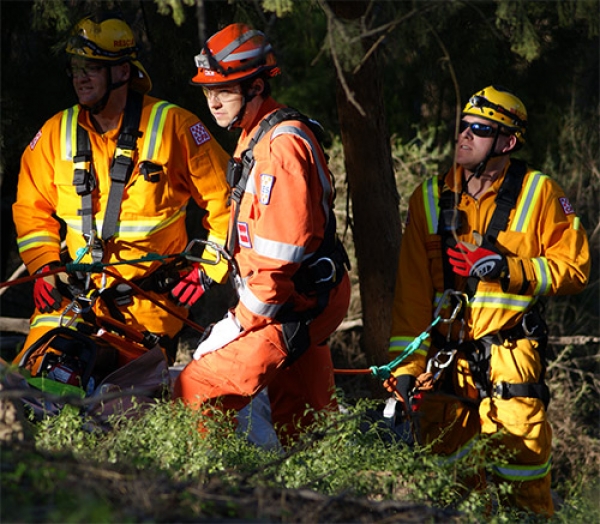
Quarterly Supplement – June 2021 edition
Included with the June 2021 edition of Fire Wise was the seventh edition of the VFBV Quarterly Supplement.
The Quarterly Supplement contains 16 pages of relevant news, updates and information on current issues being pursed by VFBV on behalf of members. It also includes links to additional resources or updates that are available via our website.
An electronic copy of the Quarterly Supplement can be downloaded here.
Brigade Captains and Secretaries, Group Officers and Group Secretaries as well as VFBV delegates are requested to please take the time to read this and future editions, and to table at your upcoming meetings for the benefit and knowledge of your members.
VFBV Affiliation
Thank you for members’ strong show of support. VFBV affiliation rates averaging 95% over the past 5 years, shows the value of our unified voice is clearly recognised and demonstrates strong support for the important work that VFBV does on behalf of all CFA volunteers.
The 2021/22 renewal notices for your Brigade/Group’s VFBV Affiliation and Welfare Fund have now been forwarded to all Brigades and Groups with a due date of 30 June 2021.
In recognition of the significant donations received to the Welfare Fund from the public following last year’s devastating bushfires, a one off 50% discount is being offered for the 2021/22 Welfare Fund Subscription, reducing the cost to all Brigades this year to $45.00. Both the VFBV Board and the Welfare Fund Committee see this as a way of supporting the many Brigades who have subscribed to the Welfare Fund since 1913. It is hoped that this reduced cost will encourage new Brigades to join the Welfare Fund this year for the benefit of their members. This is a very low cost to ensure that your members are covered should they find themselves in financial hardship for whatever reason.
Brigades and Groups who pay their VFBV affiliations before 30th June 2021 will automatically go into the draw to win their choice of one of the worthwhile prizes kindly donated by GAAM - G-Force Nozzle with Quick connect coupling; Gated Wye with Stortz Inlet and quick connect outlets; Root Soaker; TFT Break Apart Nozzle; or from Powdersafe - five Helmet Torches and carry case; or donated by CFA six Uniden Digital Scanners. VFBV sincerely thanks GAAM Emergency Products, Powdersafe Pty. Ltd. and CFA for their continued generous support in providing these prizes.
For further details of the prizes on offer, see the flyer which was included with the VFBV invoices sent to your Secretary in April.

Nominations for Trust Fund
The VFBV Board is calling for nominations to the CFA and Brigades Donations Trust Fund. The purpose of the Trust Fund is to raise and receive money and donations of goods and services from the public for distribution to Brigades, to assist with costs of purchasing and maintaining firefighting equipment, facilities, training and resources and administrative expenses of Brigades which are associated with their firefighting functions.
Following nominations, five new or reappointed members will be appointed by the VFBV Board to serve as VFBV Trustees on the Trust Fund for a term of two years. One member has advised they will not be re-applying; all other members are eligible for re-appointment.
The Trust Fund committee meets quarterly, either via teleconference or at CFA HQ, with appointments to come into effect as from the Trust’s AGM which is normally held July/August.
Nominations close at close of business on Monday 21 June 2021 can be mailed to VFBV office, 9/24 Lakeside Drive, Burwood East 3151 or emailed to This email address is being protected from spambots. You need JavaScript enabled to view it.
Proposed CFA Realignment
CFA released some proposed realignments of CFA functions, mostly impacting upon how HQ is structured and aligned. Members would have received an email dated 8th June from the CEO and CO outlining the changes.
You can access further detail from Brigades Online via: CFA Proposed Realignment, www.members.cfa.vic.gov.au
A Volunteer Briefing Presentation is available from that page.
Consultation is now underway, and feedback can be provided by any individuals via a Consultation Feedback form accessible via the above link. Feedback closes on 23 June.
VFBV has been notified that the VFBV Volunteer Welfare & Efficiency survey results of previous years has been at the forefront of their minds as they have thought about the proposed realignments. It is hoped the benefits of streamlining and removing duplication and moving service delivery back out to the Region/District layer will benefit and improve support services to brigades, groups and members and start addressing the critical feedback from our surveys and current advocacy.
While the proposed CFA realignment changes mostly impact upon staff (titles, reporting lines and directorate realignments), volunteers have been invited to provide feedback should they wish to provide input or have any specific concerns. Members are also free to raise any issues through their District Councils, or given the timelines, through your VFBV Support Officers so I can assess any emerging themes that you feel VFBV should be pursuing.
Should there be any significant matters of concern to volunteers, VFBV is happy to pursue with the Executive.
Zero BAC
Members are reminded that Victoria’s road rules have been recently changed that now make it a requirement for all drivers of vehicles weighing 4.5 tonne or more to have a zero-blood alcohol concentration. This applies to the vast majority of trucks in CFA’s fleet.
In essence, any truck that you cannot drive with a standard car license is now defined as a “heavy” vehicle. There are harsh penalties for any driver who exceeds the zero limit – with the same penalties that apply to other legal limits. All offences incur a large fine, loss of license, mandatory behaviour change program attendance and an alcohol interlock requirement.
Both State Council and the VFBV Board have recently discussed this issue and are calling on the Government to remove caps, limits and budgetary pressures currently in place that restrict CFA volunteers’ ability to upgrade their licenses and access driver training. Significant investment is now required to increase our driver capability and number of available drivers to account for the significant vigilance required to monitor zero BAC.
VFBV is in the process of contacting brigades to determine what other support or assistance you may need, and members are encouraged to respond and assist with our advocacy.
Virtual Reality
VFBV delegates are currently working alongside CFA to develop virtual reality and XRV Incident Command Technicians and Facilitators. CFA has confirmed that they have recently purchased an additional five Flaim VR (Virtual Reality) units bringing the total to 10, these have been funded partly by the public donations and form part of CFA Training Strategic Plan 2019 – 2024.
These units are expected to be located at each CFA Region for bookings and use by Groups and Brigades. VR and XVR can be used for skills maintenance and adds an additional resource for volunteers to access.
VESEP Applications – Closing Soon
A reminder that VESEP applications close very soon, with applications to be submitted to your district office by Friday 18 June.
To assist brigades and groups with applications, VFBV’s 2021 Application Help Pack is available for download from the VFBV website. The Help Pack contains the Special Access grant application form along with other application forms and all CFA information sheets.
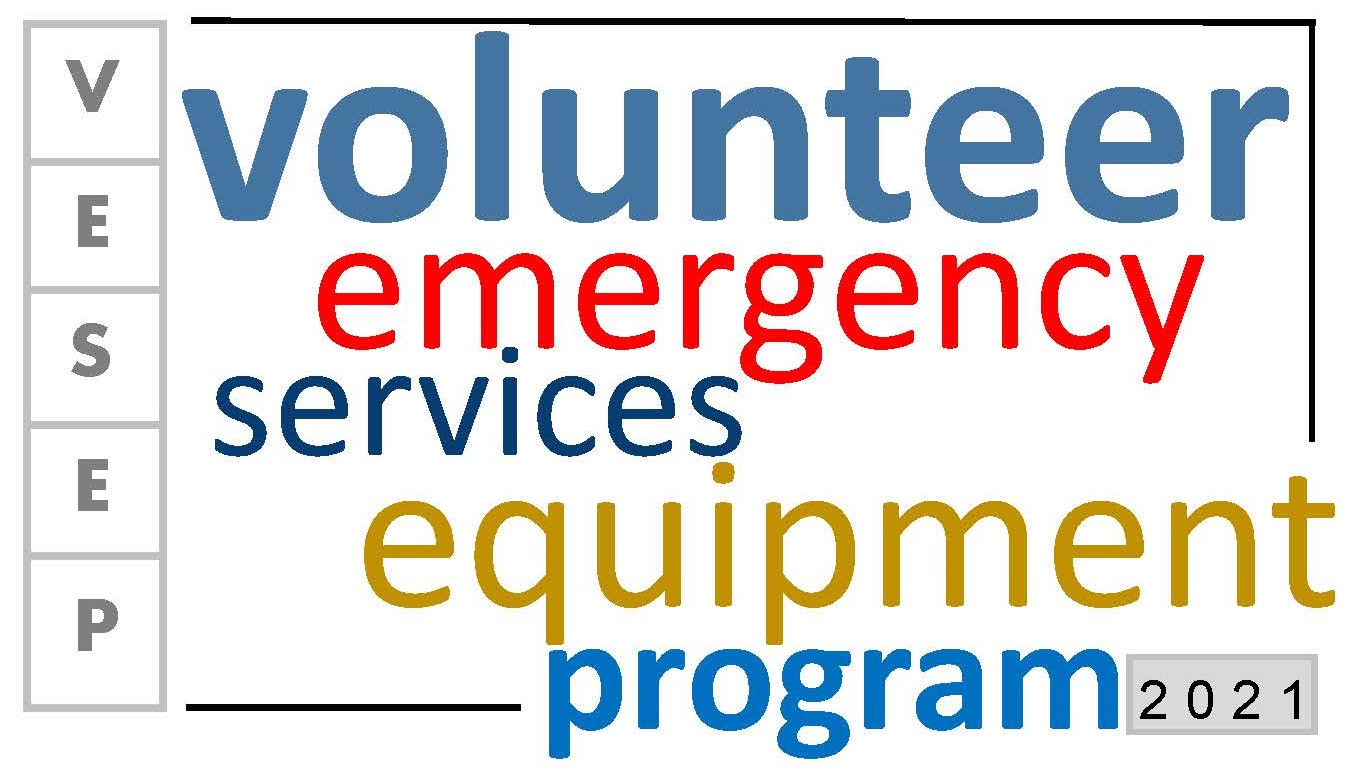
National Volunteer Week 2021
National Volunteer Week was held from Monday 17 May to Sunday 23 May. VFBV recognised the 54,000 CFA volunteers who contribute their time, skills and resources to ongoing volunteer work in communities, before, during and after emergencies.
As part of National Volunteer Week, VFBV published a number of website articles recognising the contribution of CFA volunteers.
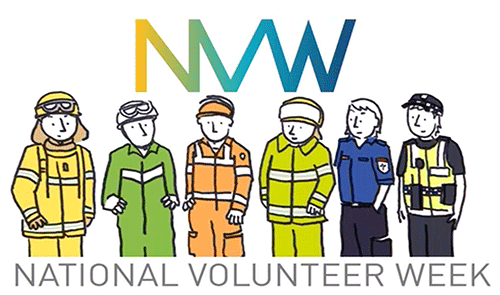 |
National Volunteer Week 2021 |
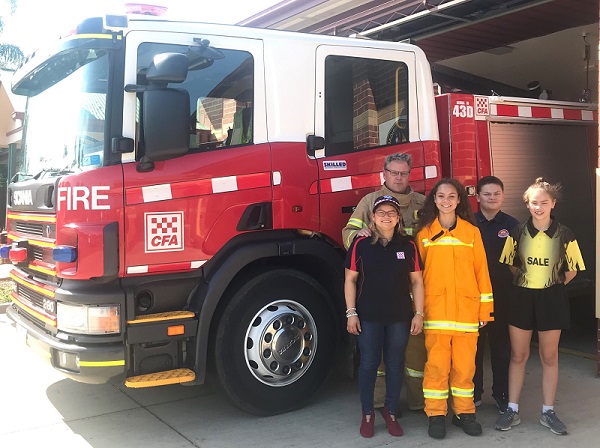 |
|
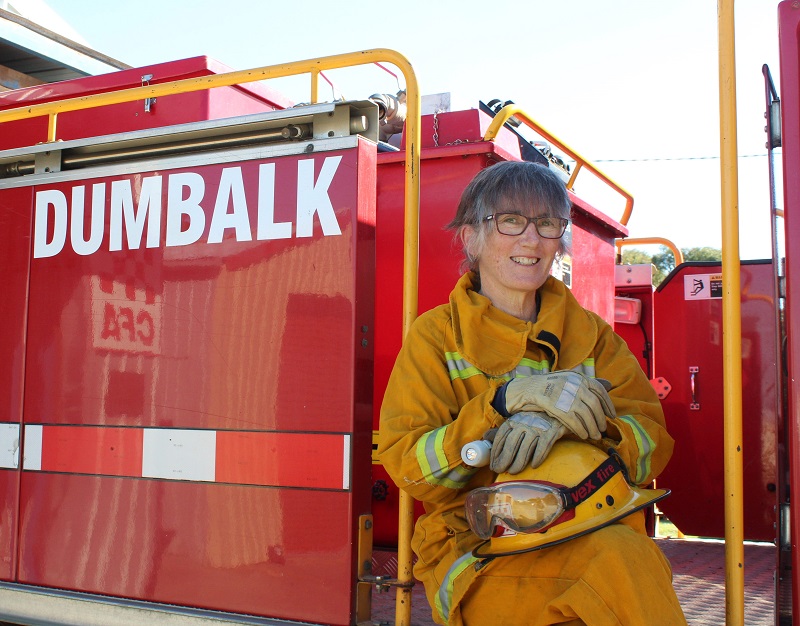 |
Dumbalk volunteer still breaking down barriers |
 |
CFA volunteer recognised after more than 60 years |
VFBV Board Vacancies

COVID-19 Resources
Available from the VFBV website is a COVID-19 financial support resources article. This article has been updated recently to ensure that the resources listed are all up to date.
A reminder also that CFA provide a lot of resources for brigades, groups and volunteers on Brigades Online. CFA’s resources include the current response levels and also links to the latest updates from CFA.

Recent articles on the VFBV website
National Volunteer Week 2021
Sale family continues firefighting legacy
Dumbalk volunteer still breaking down barriers
CFA volunteer recognised after more than 60 years
VFBV Board Vacancies: Invitation to Apply
Enjoying the VFBV monthly newsletter
If you enjoy reading the VFBV newsletter each month, why not share it with your fellow volunteers?
Either share this page with others who may enjoy the articles or encourage other volunteers to sign up to receive their own copy via email each month here.
VFBV Media Release - May 2021
Jack McGennisken was always a hero in the eyes of his daughter Judi Pymer, and now more than 60 years after his death, the Wonwondah volunteer firefighter is being formally honoured for his service and heroism.
After a campaign lasting almost 20 years, volunteer firefighters have ensured Mr McGennisken’s name will be added to the Victorian Emergency Services Memorial.
Volunteer Fire Brigades Victoria (VFBV) district 17 state councillor Maurice Dumesny said it was a fitting tribute for Mr McGennisken who was accidentally killed during a roadside burn-off on December 9, 1957.
To Mrs Pymer the recognition is something to cherish, to his fellow CFA volunteers it’s well-deserved recognition for a fallen colleague.
Mrs Pymer said being a volunteer was a big part of her father’s life.
“He was very involved with all the community. To me he was my hero, whether he was on the footy ground, driving the trotters or helping the fire brigade,” she said.
Mrs Pymer was adopted when she was four and a half and Mr McGennisken died when she was 10.
“I didn’t know him that long but I was always proud of him, whatever he did,” she said.
“The older I get, the more I recognise what Mum and Dad did for me.”
Some of her great memories of her father centre on his CFA volunteer work. “After the fires in the summer of 1956, I remember a couple of days later going out with him to check that all the stock lying around were actually dead.
“If he found any alive, he would have humanely put them down. He was a big man but a very gentle man…a gentle giant.”
Mrs Pymer said she was proud that his name was being added to the memorial.
“There was a thanksgiving service in Horsham in 2005 and because it was a burn-off, not a fire, they recognised him as being in service, not dying in the line of duty,” she said.
“Mum would be so proud that he has been recognised this way. He was only 43 when he died and Mum had to raise me while trying to hang on to the farm, which she did.”
The accident happened on the Henty Highway south of Horsham during a roadside burn in conjunction with the Country Roads Board (CRB), now known as VicRoads.
An empty fuel truck heading to Portland clipped a CRB patrol vehicle and overturned onto Mr McGennisken and a CRB worker, who also died later in hospital.
A campaign to formally recognise his contribution was started in the early 2000s by former Wonwondah brigade member Jim Heard who was at the scene when Mr McGennisken was killed.
“When Jim Heard was writing the history of the brigade, he started the campaign to have Jack’s name added to the memorial wall on behalf of the brigade,” Mr Dumesny said.
“At the time it was deemed by the CFA to be a road accident but we kept pushing for it and we’re honoured that he has been finally added,” he said.
A plaque in the Wonwondah Hall also recognises Mr McGennisken, who was captain of the brigade at the time of his death.
Born Phillip, Mr McGennisken was known as Jack from his middle name Jackman, and lived his life on his family sheep and cattle farm Girvan Lea.
The plaque is being prepared and will soon be added to the memorial. Mr McGennisken’s name will also be forwarded to the national memorial in Canberra.
The new memorial was completed last year and is a tribute to fallen members from CFA, Forest Fire Management Victoria, MFB, VICSES, Ambulance Victoria, Live Saving Victoria and Marine Search and Rescue.
VFBV CEO Adam Barnett said Mr McGennisken’s addition to the honour roll alongside 79 other CFA firefighters was an important tribute to his family, friends and loved ones and recognised those who have made the ultimate sacrifice in the line of duty on behalf of their communities.
“I thank the local community, brigades and VFBV District Council 17 who all assisted in the long advocacy for Jack to be recognised.”
“Mr McGennisken’s addition to the honour roll is a fitting tribute to a CFA firefighter who has selflessly given their lives to protect the lives of other Victorians.”
“CFA volunteers play a critical role in fire prevention across the state, and roadside burns like the one being undertaken by Mr McGennisken’s crew have no doubt saved countless lives as part of Victoria’s fire prevention works.”
“Mr McGennisken tragic sacrifice will forever be remembered, as we mark our respect and deep sorrow for each of the precious lives lost in service of their community.”
A memorial service on May 2 where Jack McGennisken was inducted to the honour roll also recognised the loss during the 2019-20 fire season of three Victorian firefighters from Forest Fire Management Victoria; Bill Slade, Mat Kavanagh and David Moresi, three New South Wales firefighters from the NSW Rural Fire Service; Geoffrey Keaton, Andrew O’Dwyer and Samuel McPaul and North American firefighters; Ian McBeth, Paul Hudson and Rick DeMorgan Jr.

 |
About VFBV: VFBV is established under the Country Fire Authority Act and is the peak body for CFA Volunteers in Victoria. VFBV works tirelessly to represent, advocate and support CFA volunteers to the CFA Board and management, governments, ministers, members of parliament, councils, instrumentalities, business and the public. Our vision is for Strong Volunteerism, Embraced to Build Community Resilience for a Safer Victoria. |
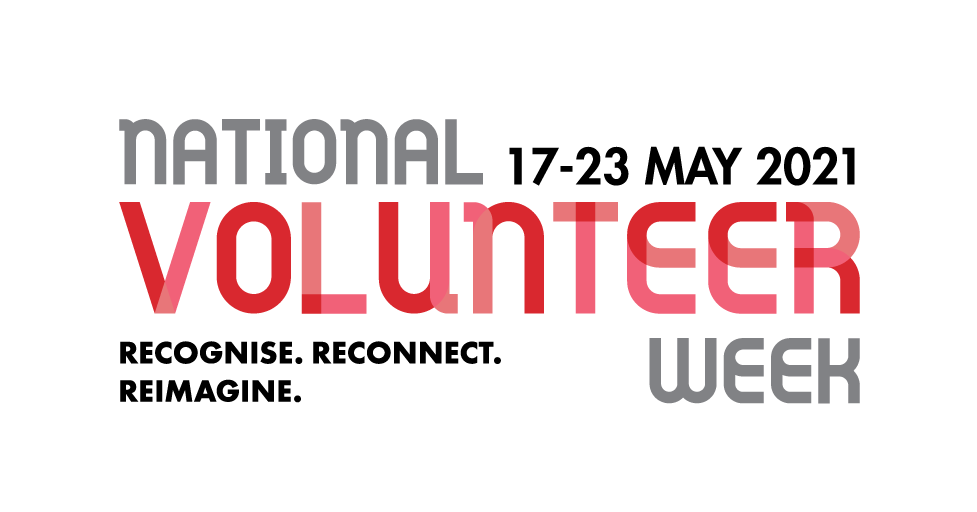 |
This article is part of our National Volunteer Week Showcase - celebrating CFA Volunteers. |
Dumbalk volunteer still breaking down barriers after 40 years
Written by VFBVVFBV Media Release - May 2021
CFA volunteer and south Gippsland dairy farmer Janet Auchterlonie was the first woman to join her local brigade in the early 1980s and nearly four decades later she’s still trying to break down barriers.
The former Dumbalk fire brigade captain continues to contribute many hours to the brigade and the wider volunteer service, and is encouraging more young people to follow her footsteps.
However, it seems some have the wrong image about being a CFA volunteer and Janet wants to set them straight.
“People imagine it’s a very risky endeavour but it’s not,” she says. “I’ve been to so many fires over 40 years but I’ve never felt in danger. There’s the image of someone with a hose in front of 20-foot-high flames and that puts them off but the reality is very different. You can get in dangerous situations but our training and safety-first culture minimise that risk and statistically I’m more likely to be injured on my farm.”
Janet, who was earlier this year named South Gippsland Shire citizen of the year, plays a big part in ensuring the safety of volunteers. She is the brigade training coordinator, chair of the District Planning Committee training sub-committee, a volunteer representative on the joint CFA-Volunteer fire Brigades Victoria (VFBV) training committee, and chair of a committee to develop strike team leaders.
“There’s a lot more training now and it’s very inclusive,” she said.
As a regular strike team member, adding to the volunteer capacity in times of major fires, Mrs Auchterlonie sees the benefits of constant upskilling.
“We’re trying to build consistent standards and get the right people with the right skills to do those roles and make sure we maintain their skills maintenance when we go for a few years without a major incident” she said.
During the 2019-20 fires in NSW and East Gippsland, Janet went on seven deployments as crew leader, driver or strike team leader and was away for a total of 28 days. Her husband Rob is also a dedicated long-time volunteer and made a similar contribution. For the first time they were away together, leaving their son to run the farm.
Volunteering has advanced since her first days on the back of a truck alongside Rob during blackout work at Driffield, near Morwell, after a major fire in 1983.
“I was the first female member of the brigade but I felt that’s what you did in your district – you joined your local brigade. I never noticed too much that I was the only female, maybe because I mostly worked in traditionally-male professions.”
After moving to Dumbalk, Janet and Rob found a proactive, welcoming and progressive brigade. And says she felt welcomed and respected in the volunteer service.
“I was thinking of dropping out of CFA, but as soon as we walked through the door at Dumbalk, we were like old friends.”
She also found more opportunities. “The fact that I could become an officer and a captain for six years; that wouldn’t have happened 40 years ago,” she said. “I didn’t chase those roles – I had men encourage me to stand.”
Janet, 61, has stepped back from the captain’s role but remains one of the brigade’s most frequent responders and is dedicated to training younger members both locally and further afield.
“We’re maintaining the status quo with numbers but the average age is getting older,” she said. “Most of our members are out of town so it would be good to get some new people involved, especially young people.
“You get so much personal development out of it. I’m getting more involved in some dairy issues and the skills I’ve gained from the CFA have given me the springboard I need to deal with the dairy industry.”
Volunteering remains the cornerstone of regional communities and Mrs Auchterlonie continues to enjoy being part of the CFA and Volunteer Fire Brigades Victoria. “The VFBV is very important,” she said. “A lot of people don’t realise how much the VFBV does on behalf of volunteers.”
“The CFA is the community for the community. This means that it can reflect some of the issues that our society has, issues that needs fixing and must be fixed. But it also must be remembered that everything that is fine and good and inspirational about our community can be found in the CFA in abundance.”
Dumbalk brigade captain Dallas Campbell said Mrs Auchterlonie was an inspiration to all volunteers.
“Janet does a great job. She’s very passionate and is always contributing night and day locally and on a group and state level, especially with training and driver training,” Mr Campbell said.
“The brigade is ticking along quite nicely and we have a few younger members at the moment which is really good, but we’d always welcome more,” he added.
VFBV CEO Adam Barnett said volunteers like Mrs Auchterlonie were the heart and soul of their communities and the CFA.
“Janet symbolises the critically important role women play in the CFA with her dedication to training and safety and her commitment to supporting our volunteer surge capacity during major incidents,” Mr Barnett said. “She is an inspiration and role model to all volunteer firefighters and we are incredibly proud of her.”

 |
About VFBV: VFBV is established under the Country Fire Authority Act and is the peak body for CFA Volunteers in Victoria. VFBV works tirelessly to represent, advocate and support CFA volunteers to the CFA Board and management, governments, ministers, members of parliament, councils, instrumentalities, business and the public. Our vision is for Strong Volunteerism, Embraced to Build Community Resilience for a Safer Victoria. |
 |
This article is part of our National Volunteer Week Showcase - celebrating CFA Volunteers. |
 News
News 
